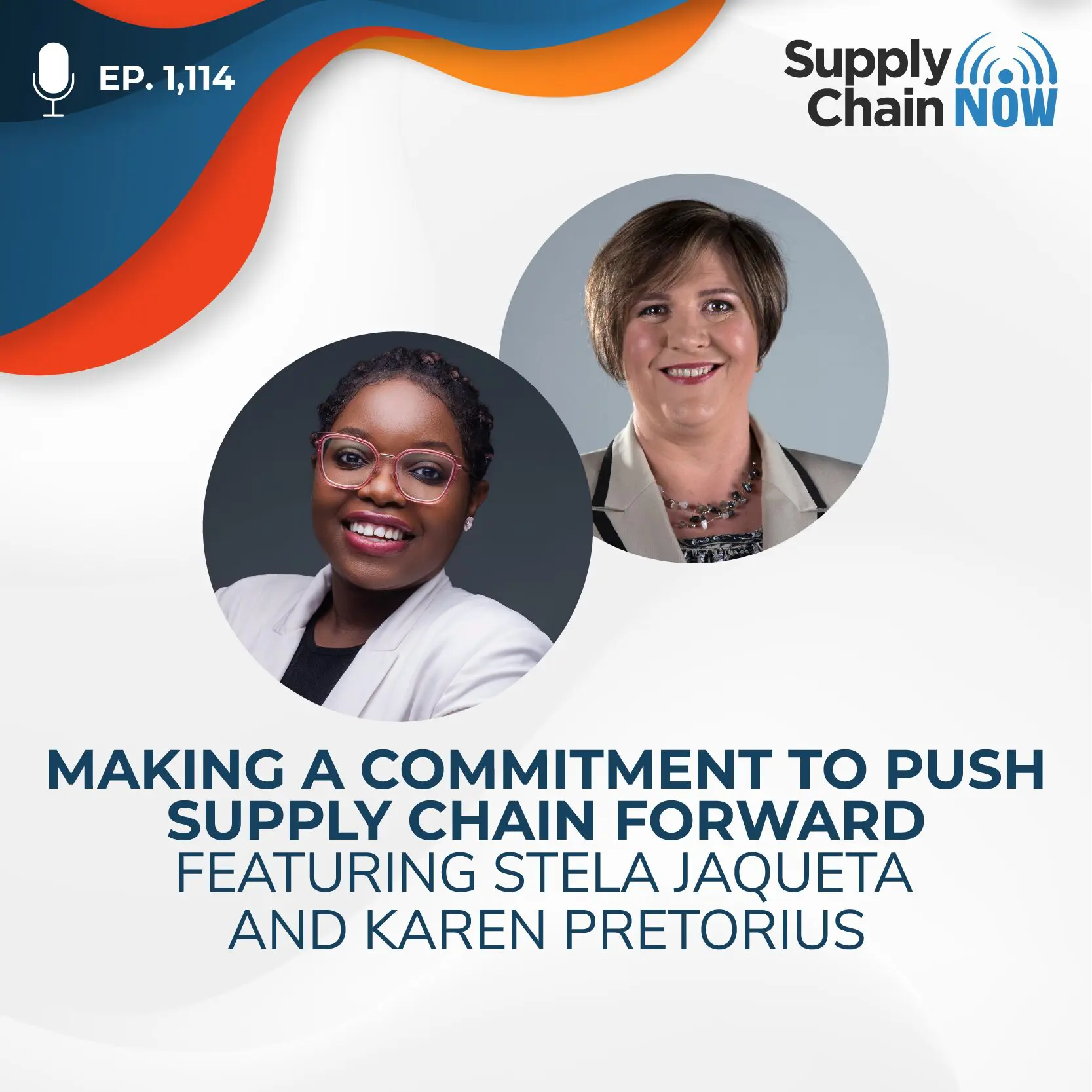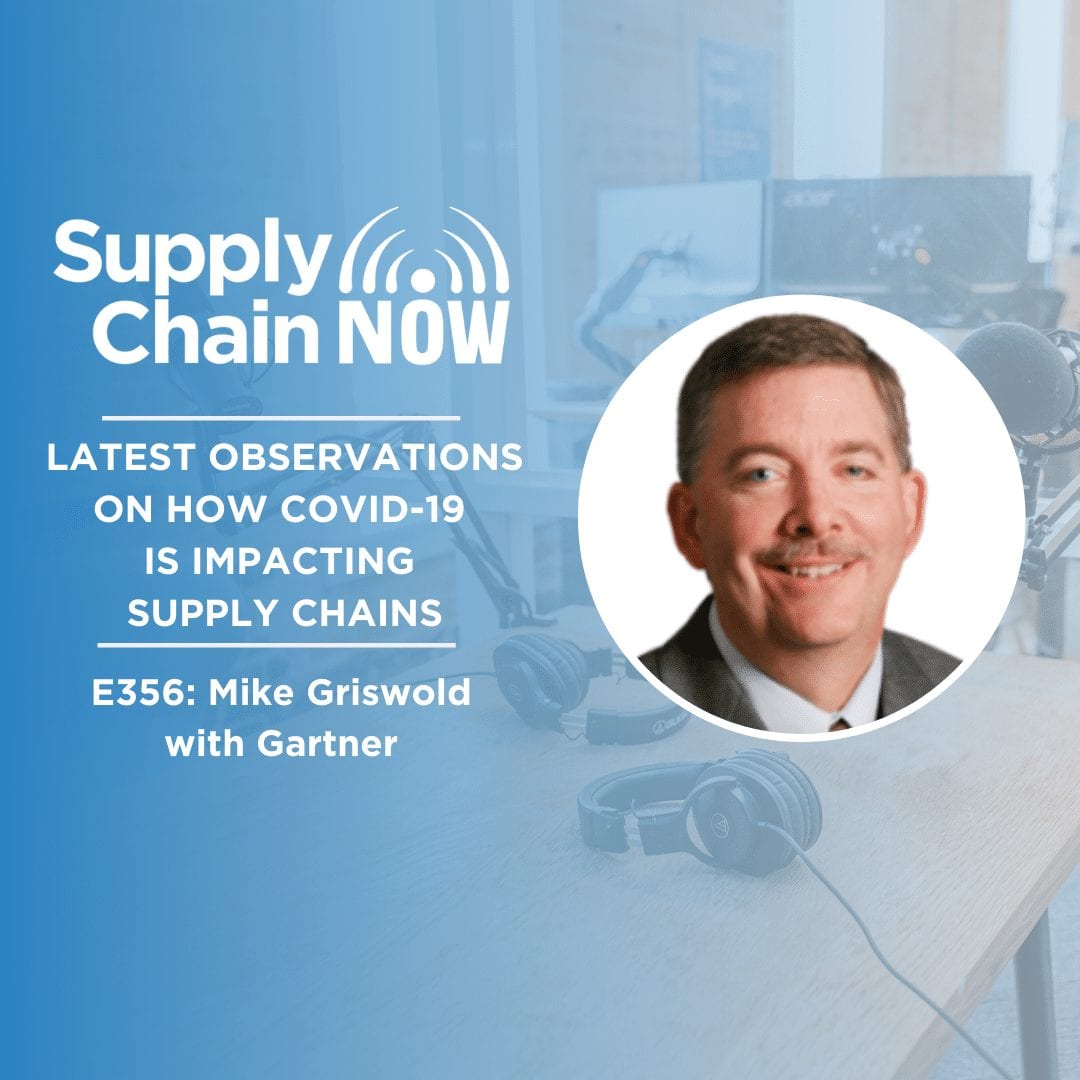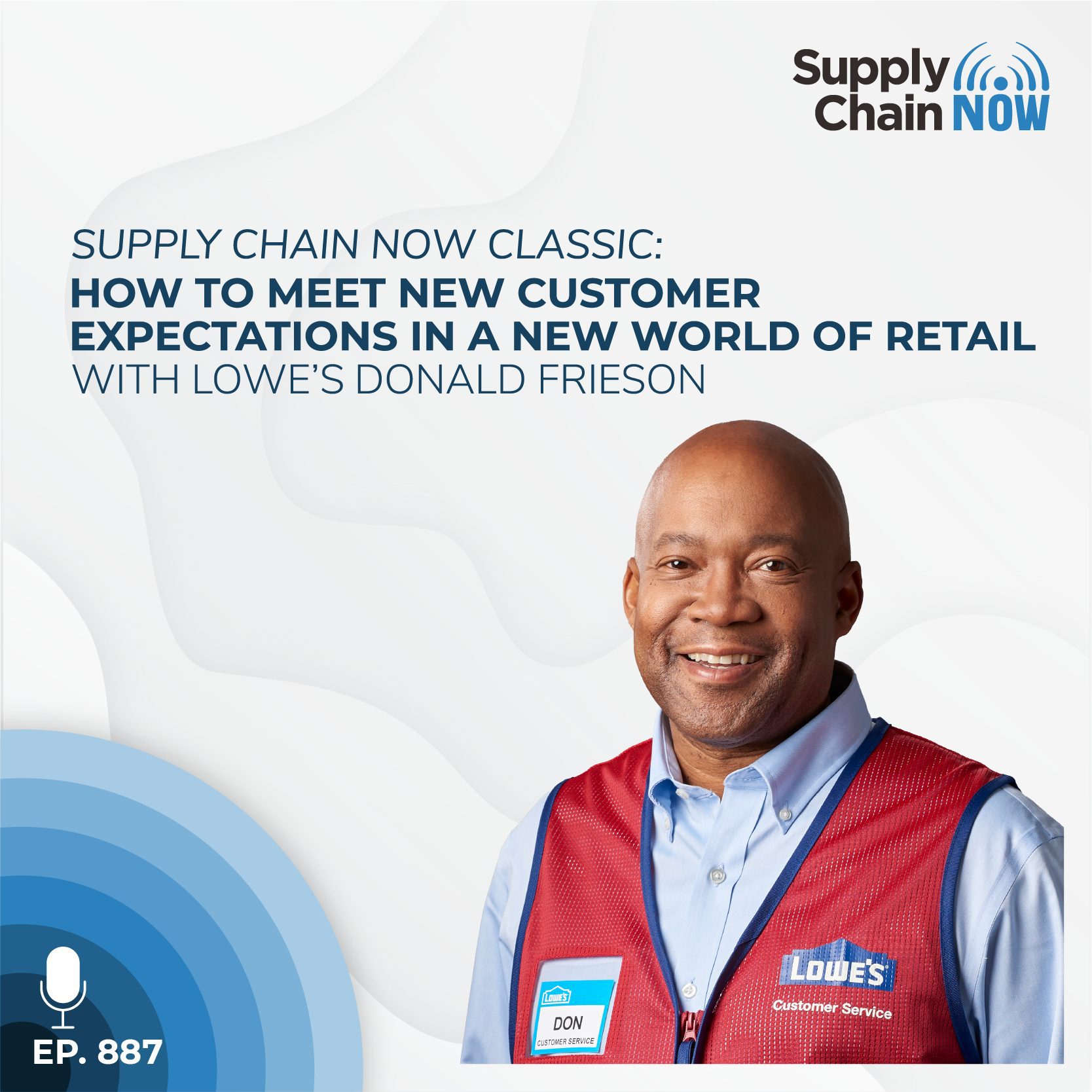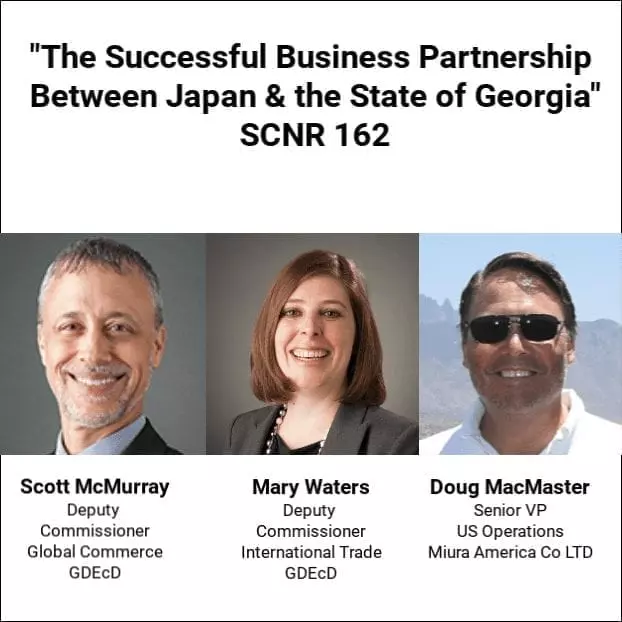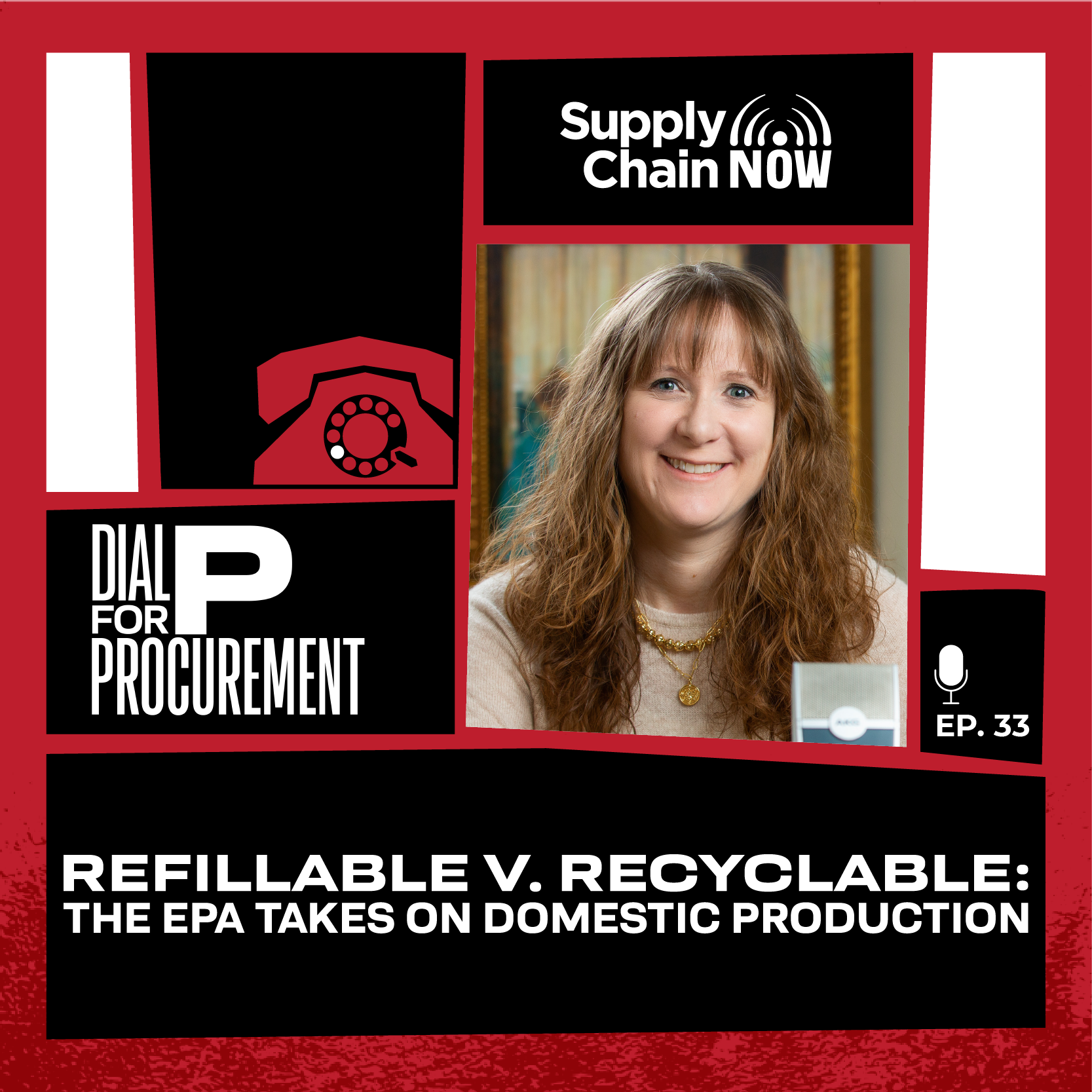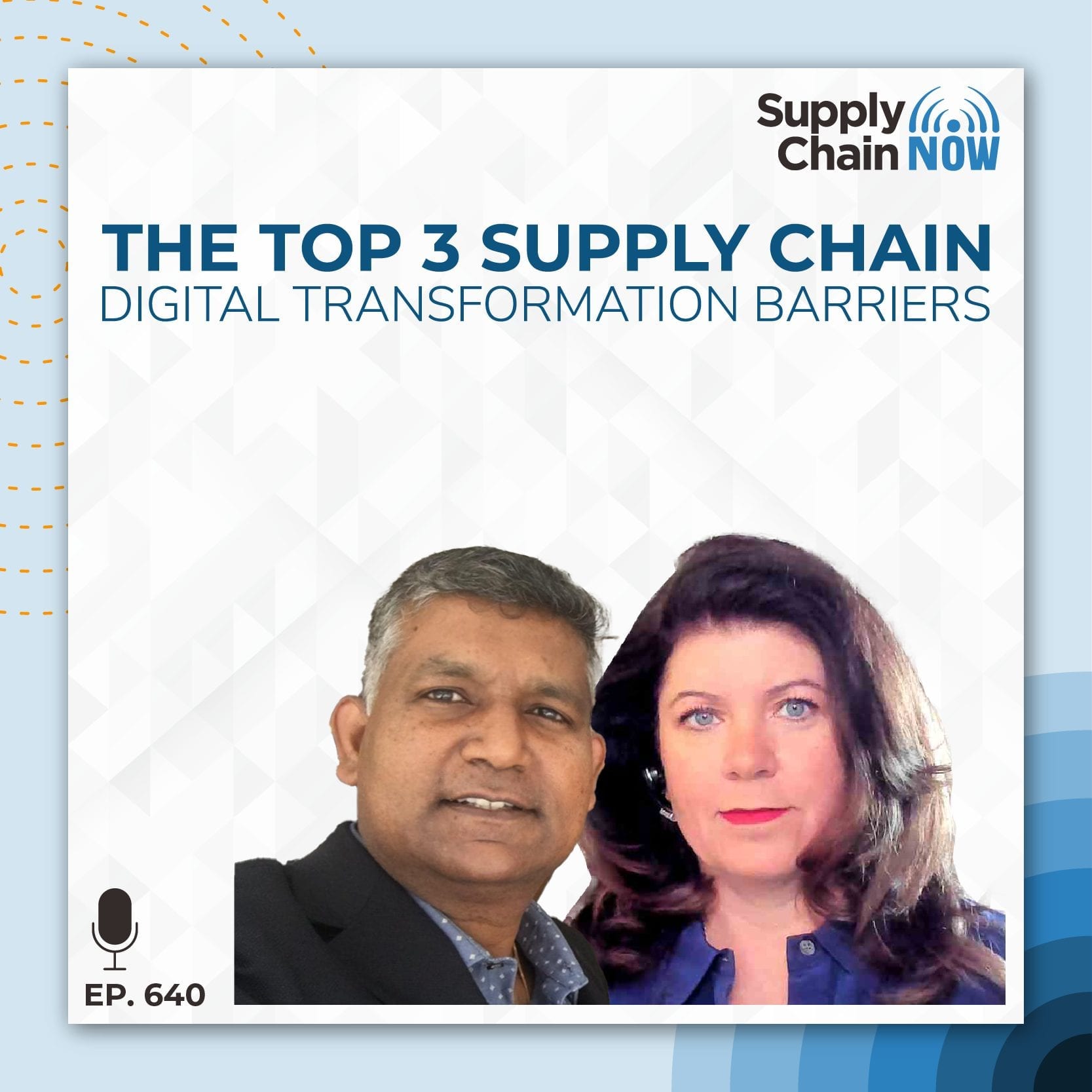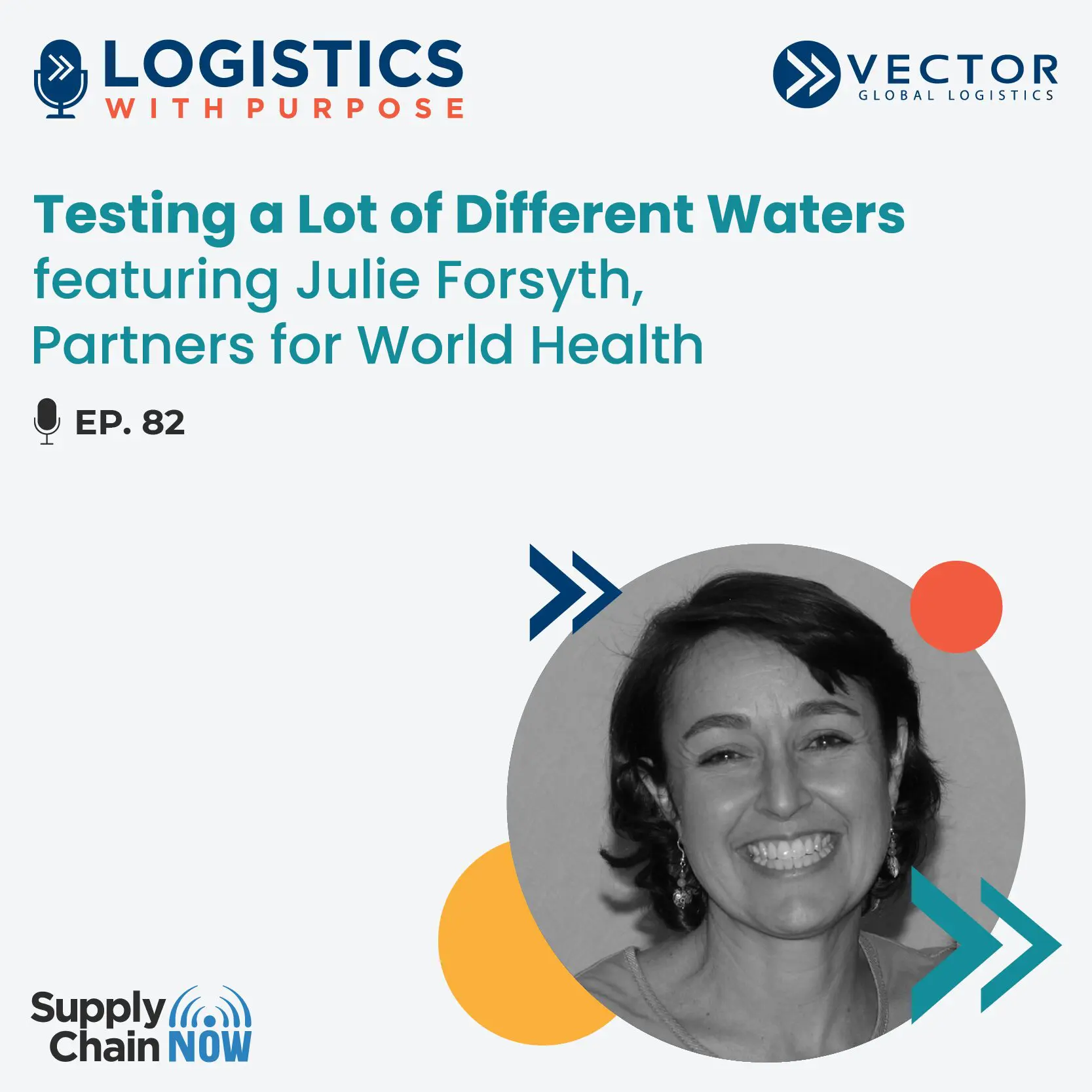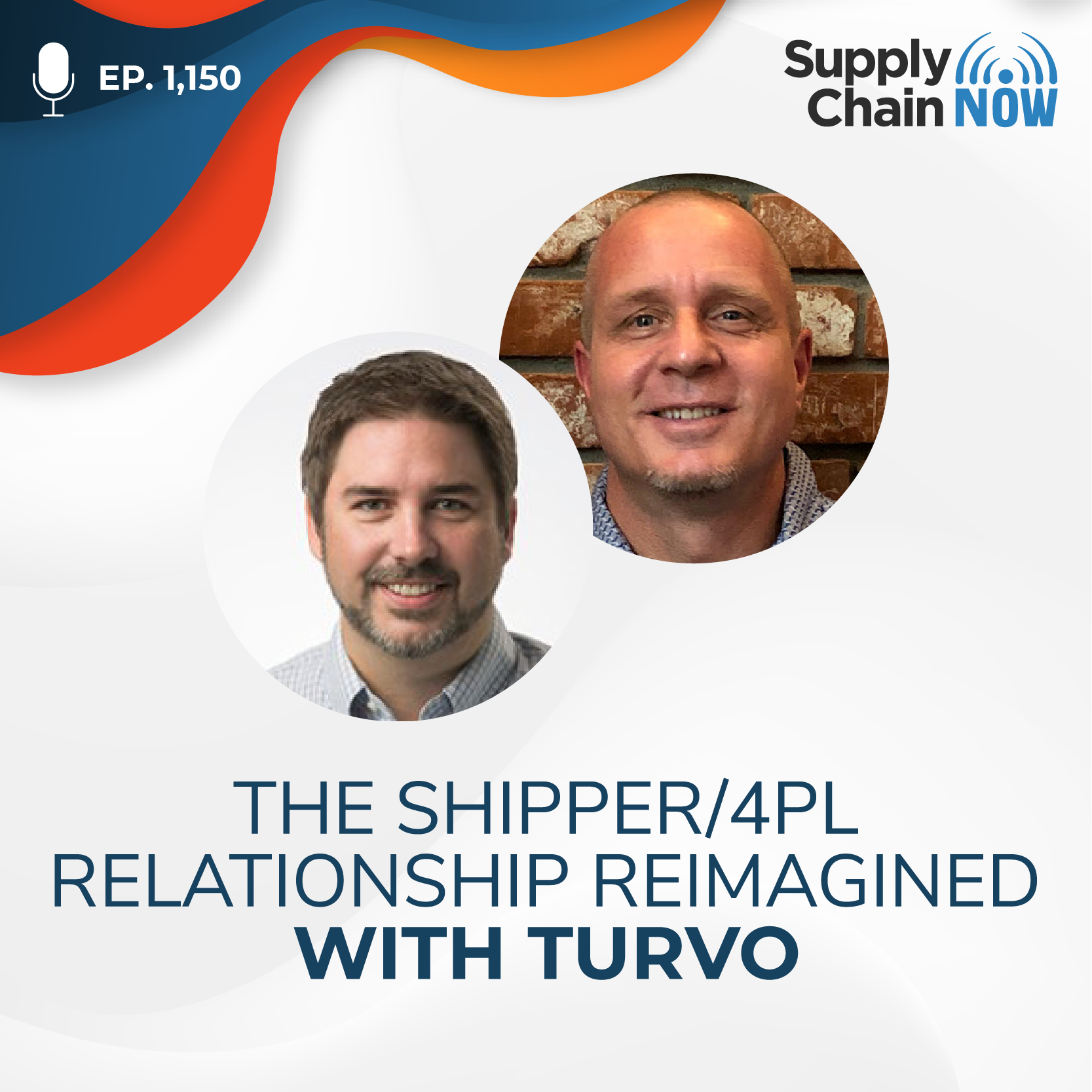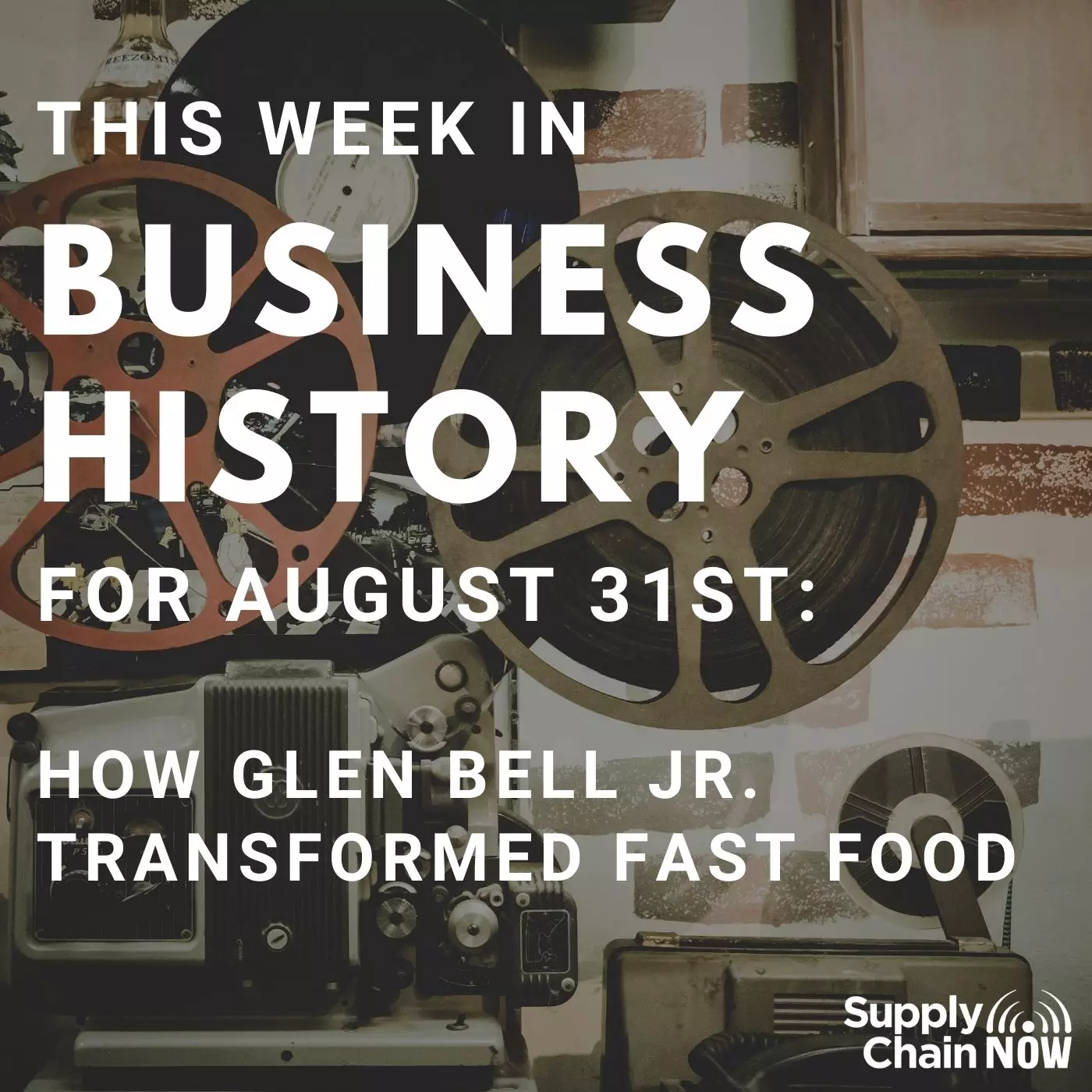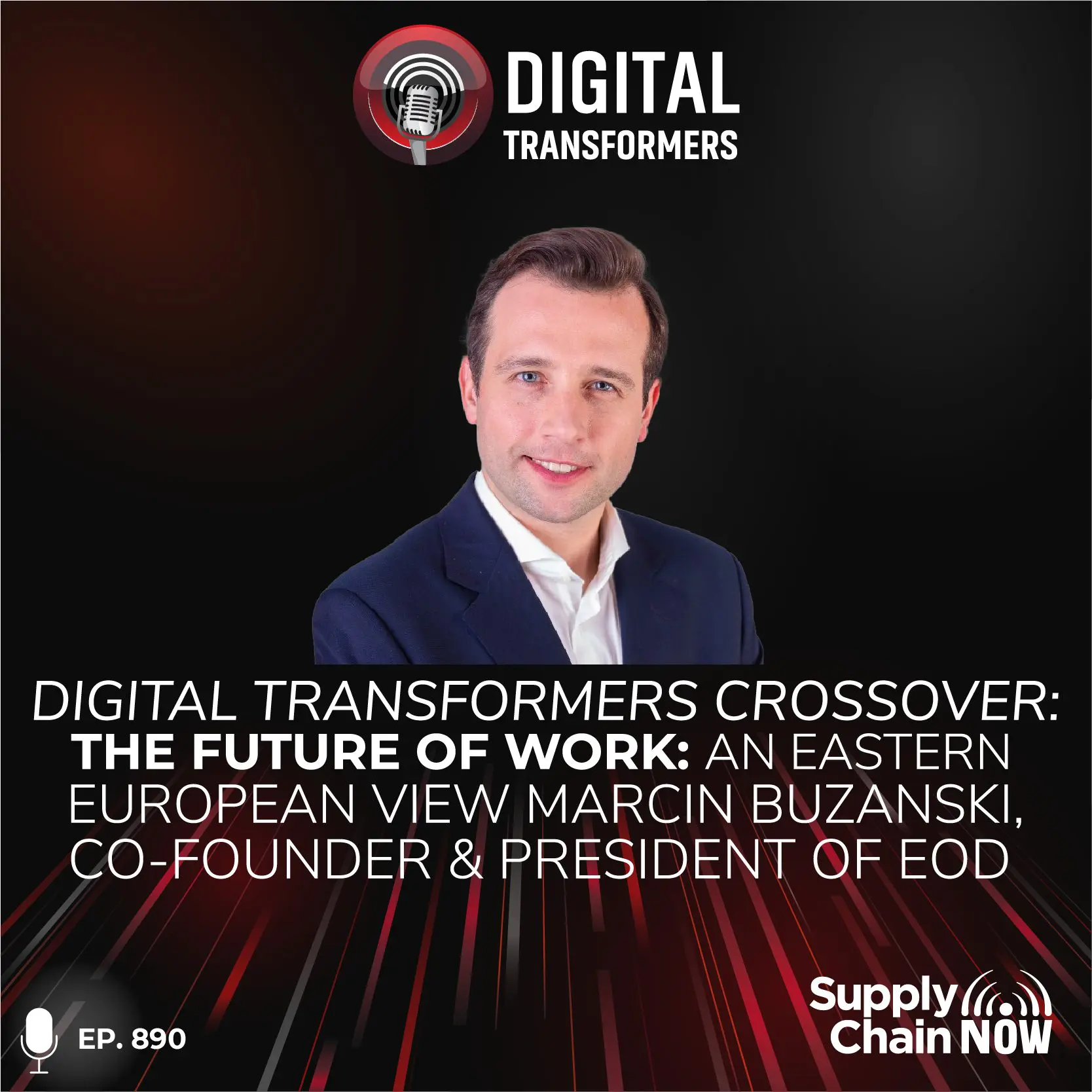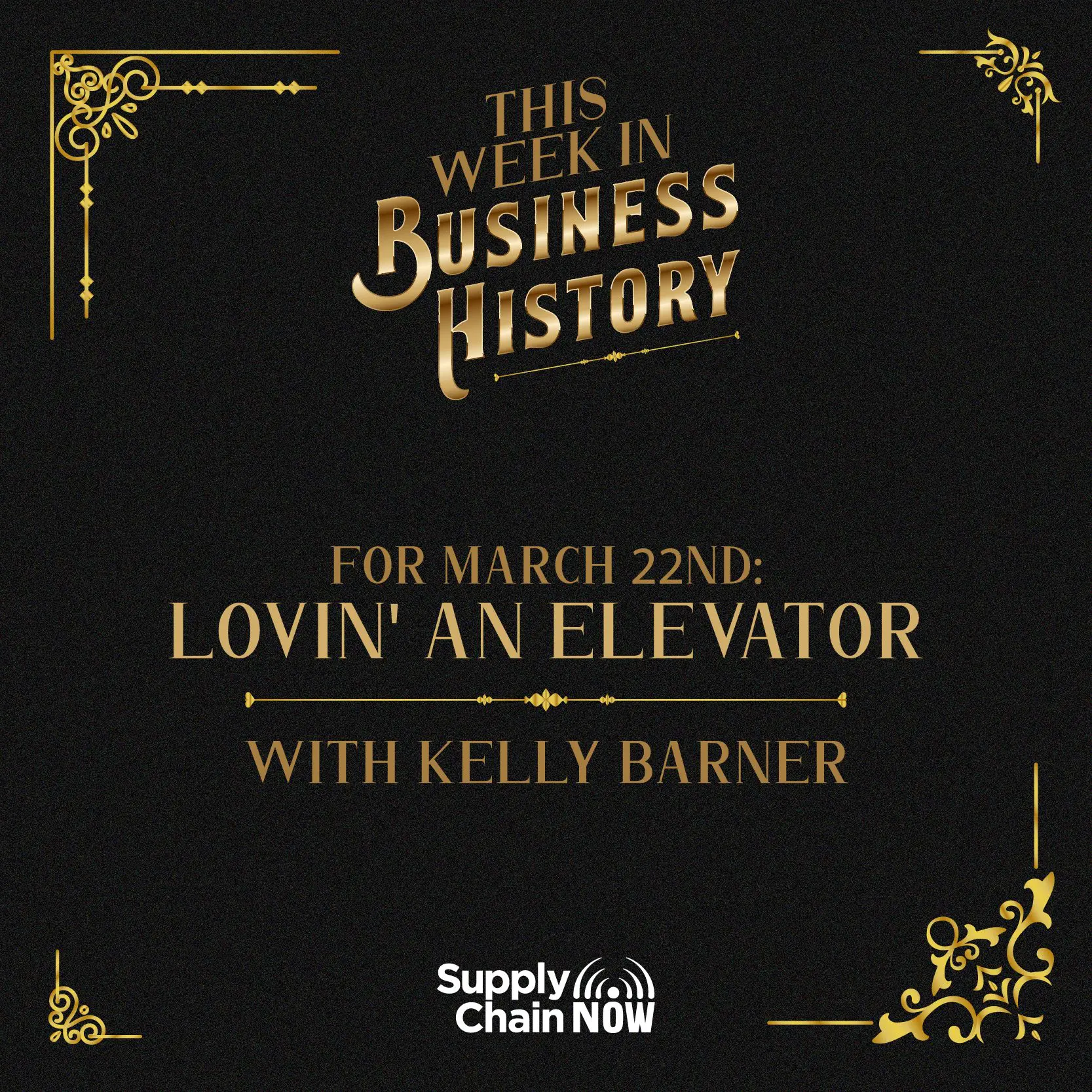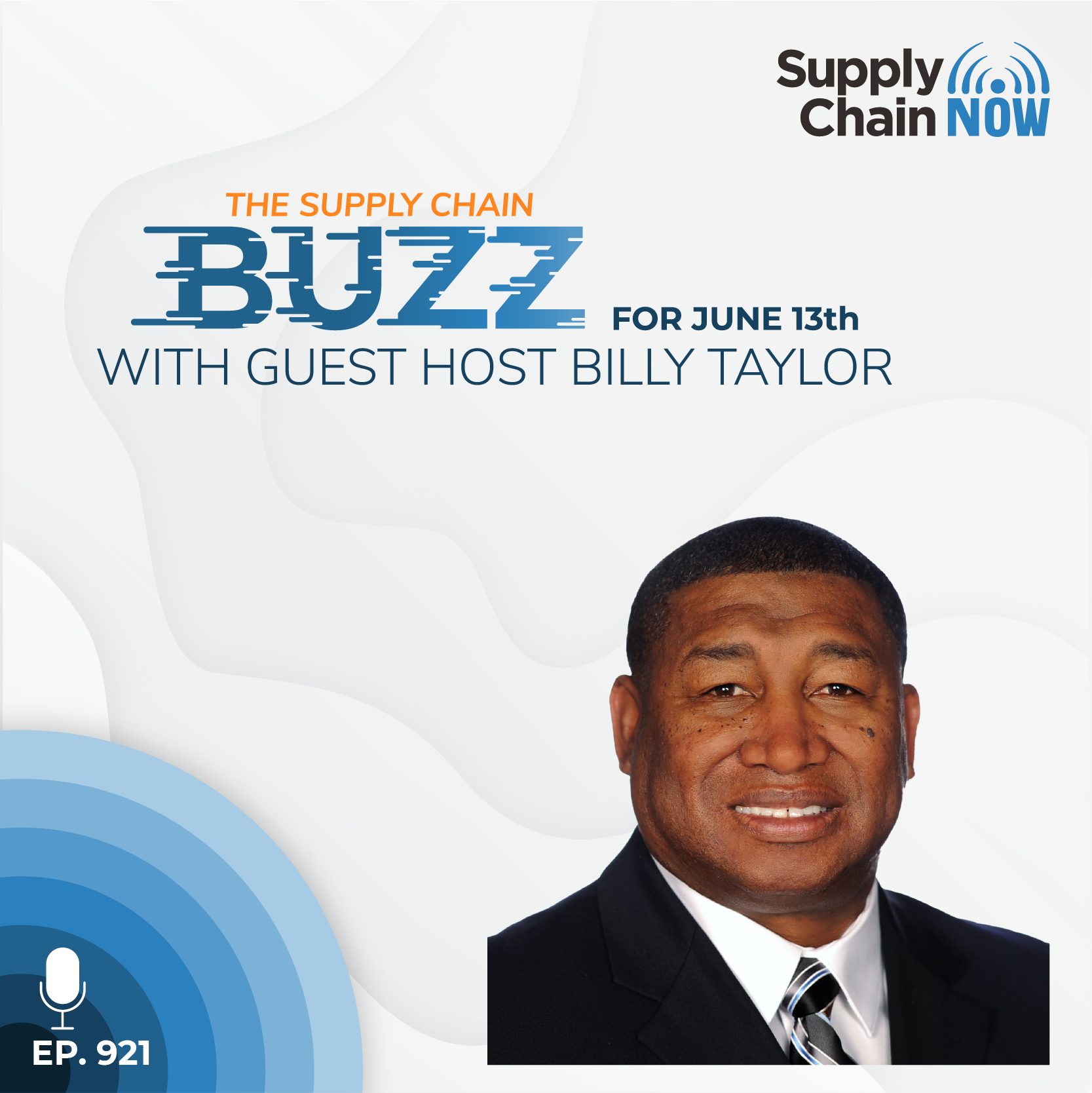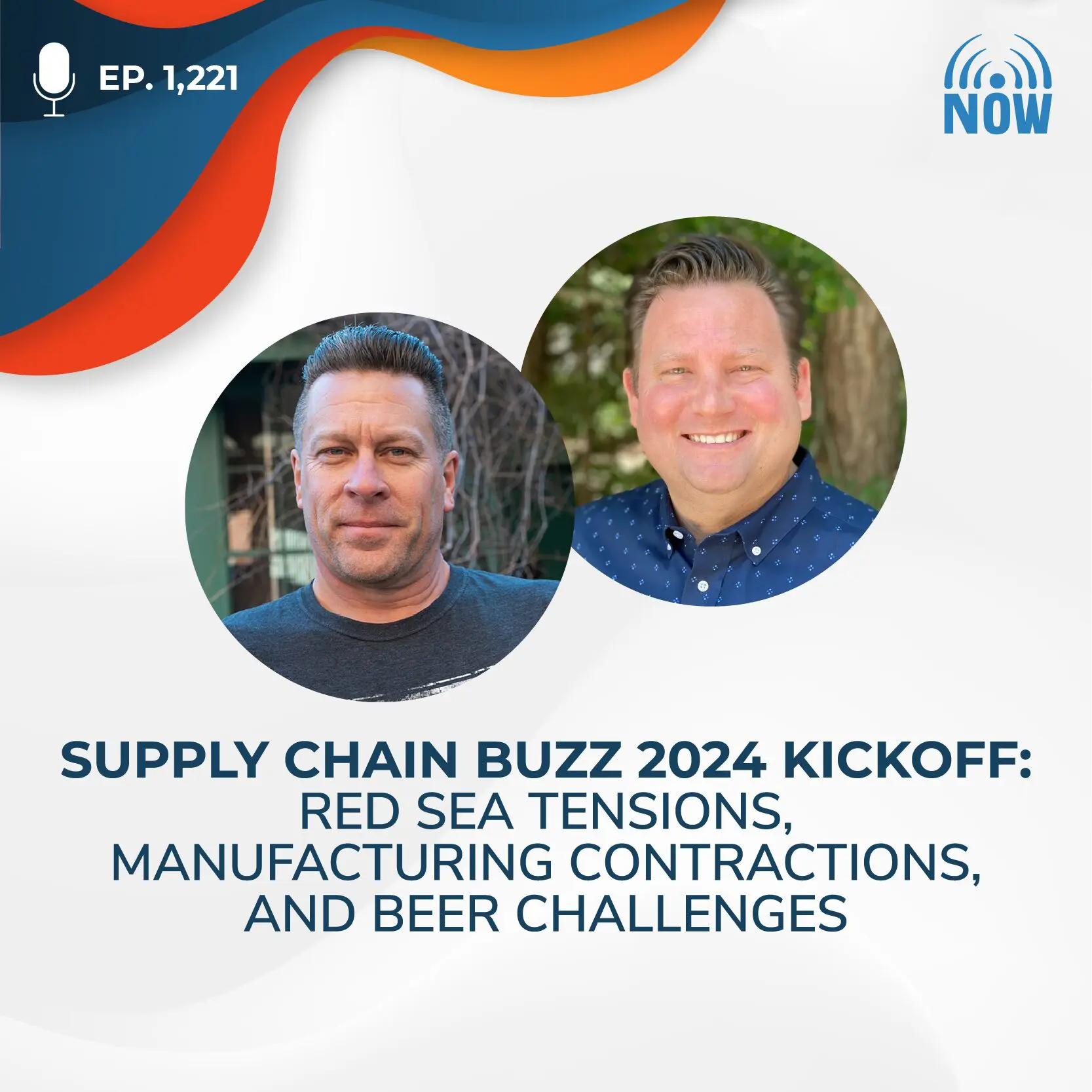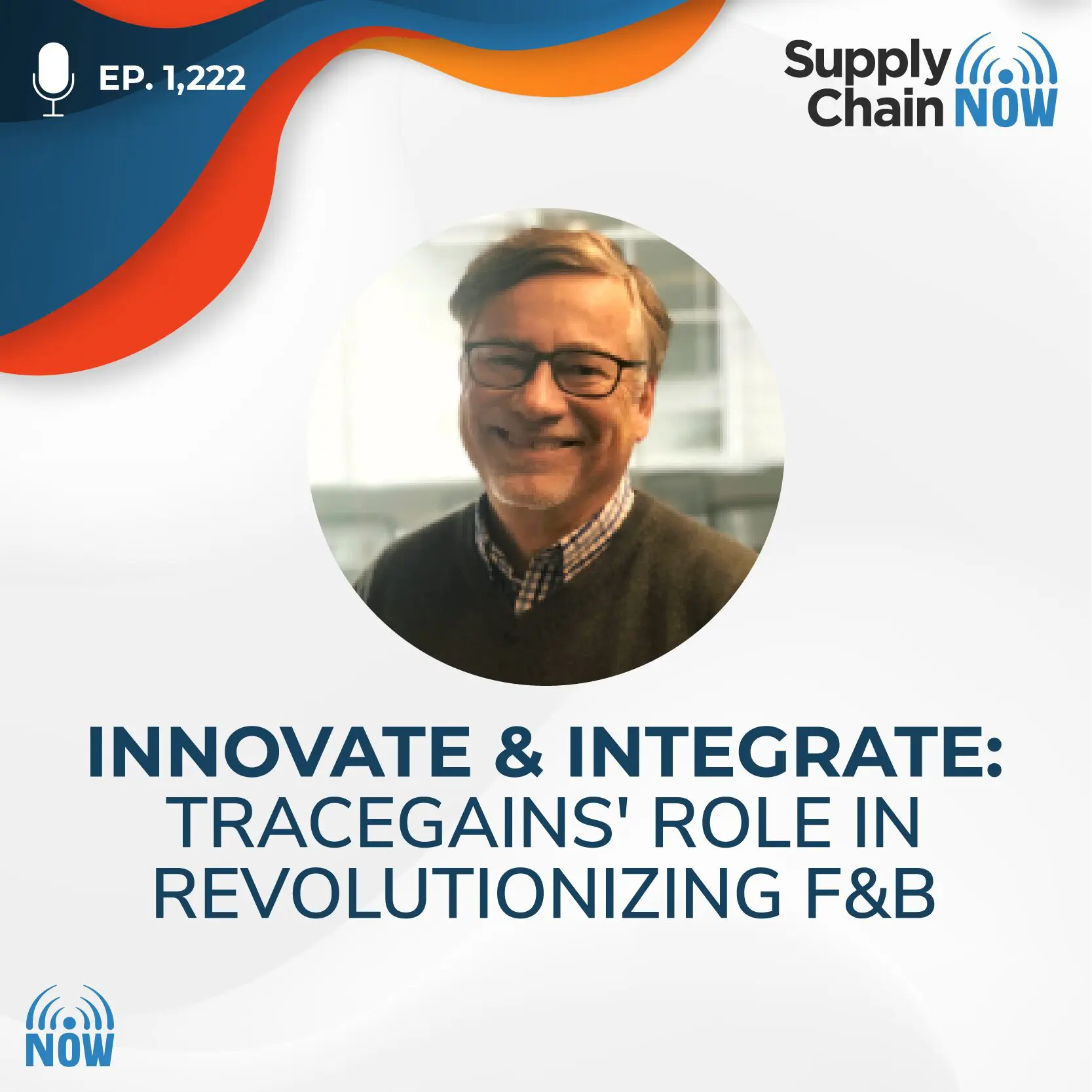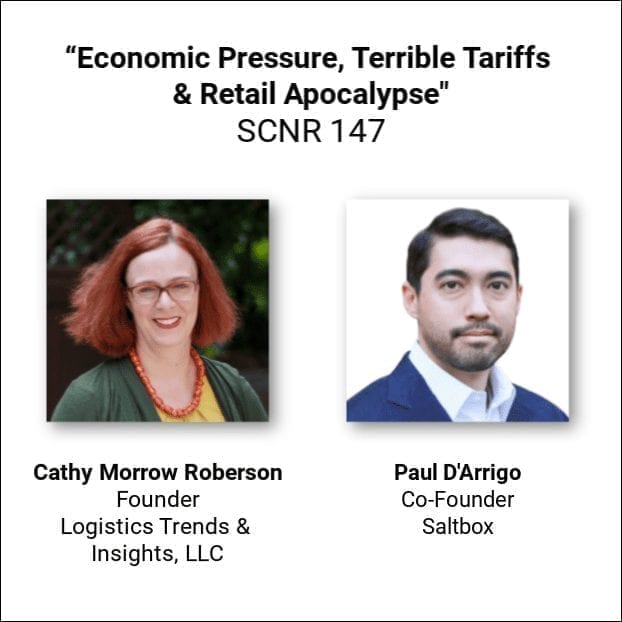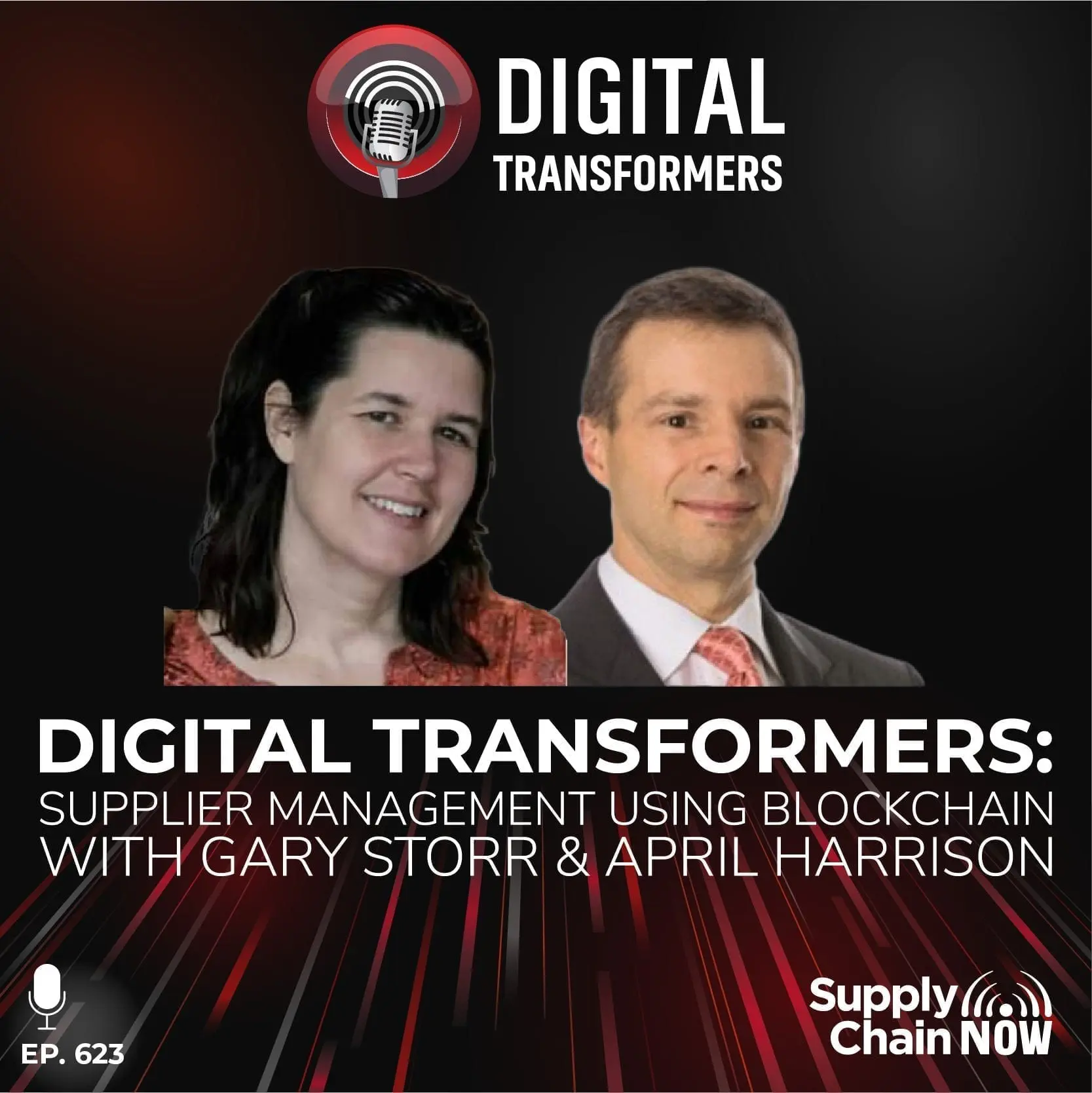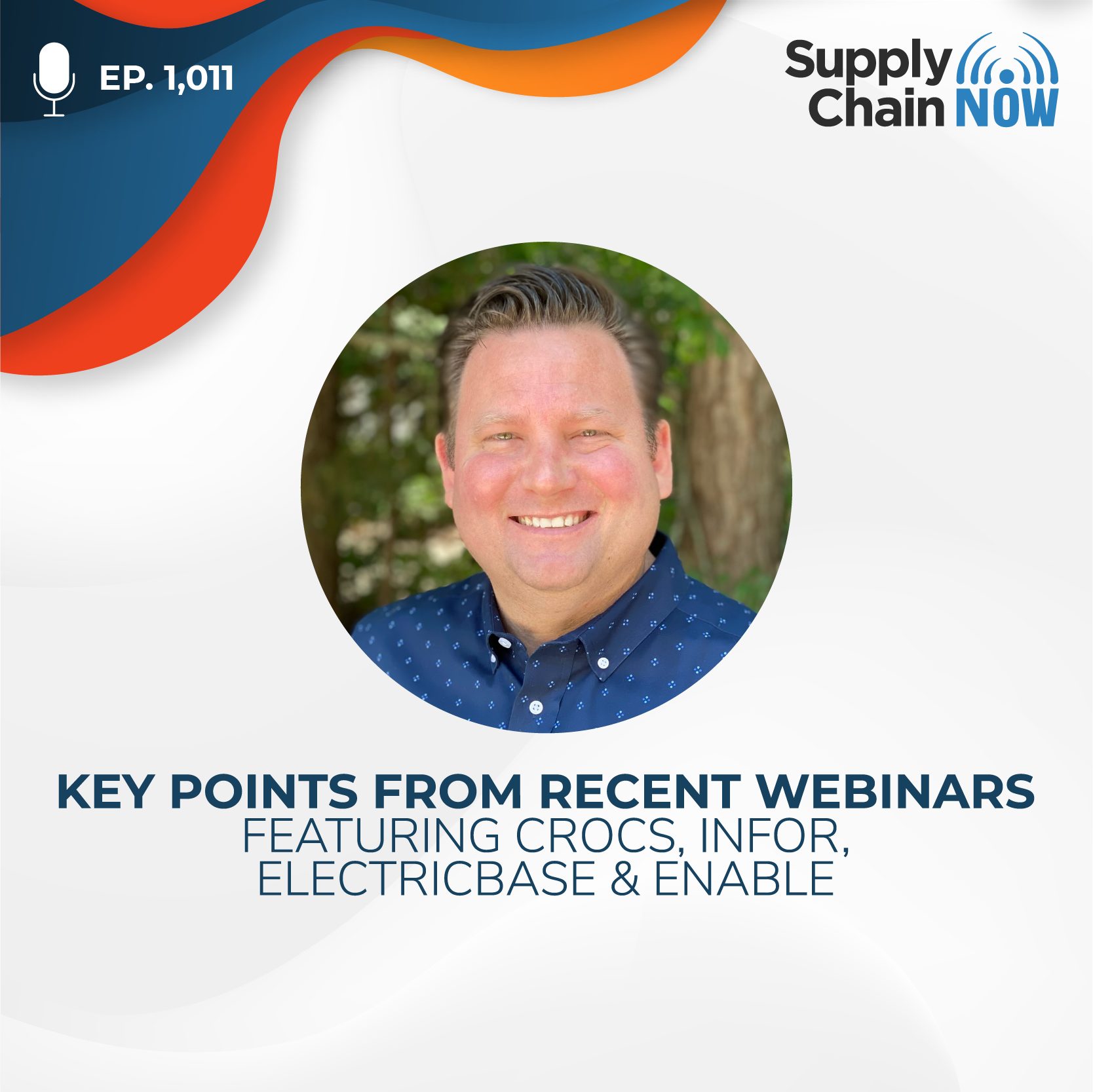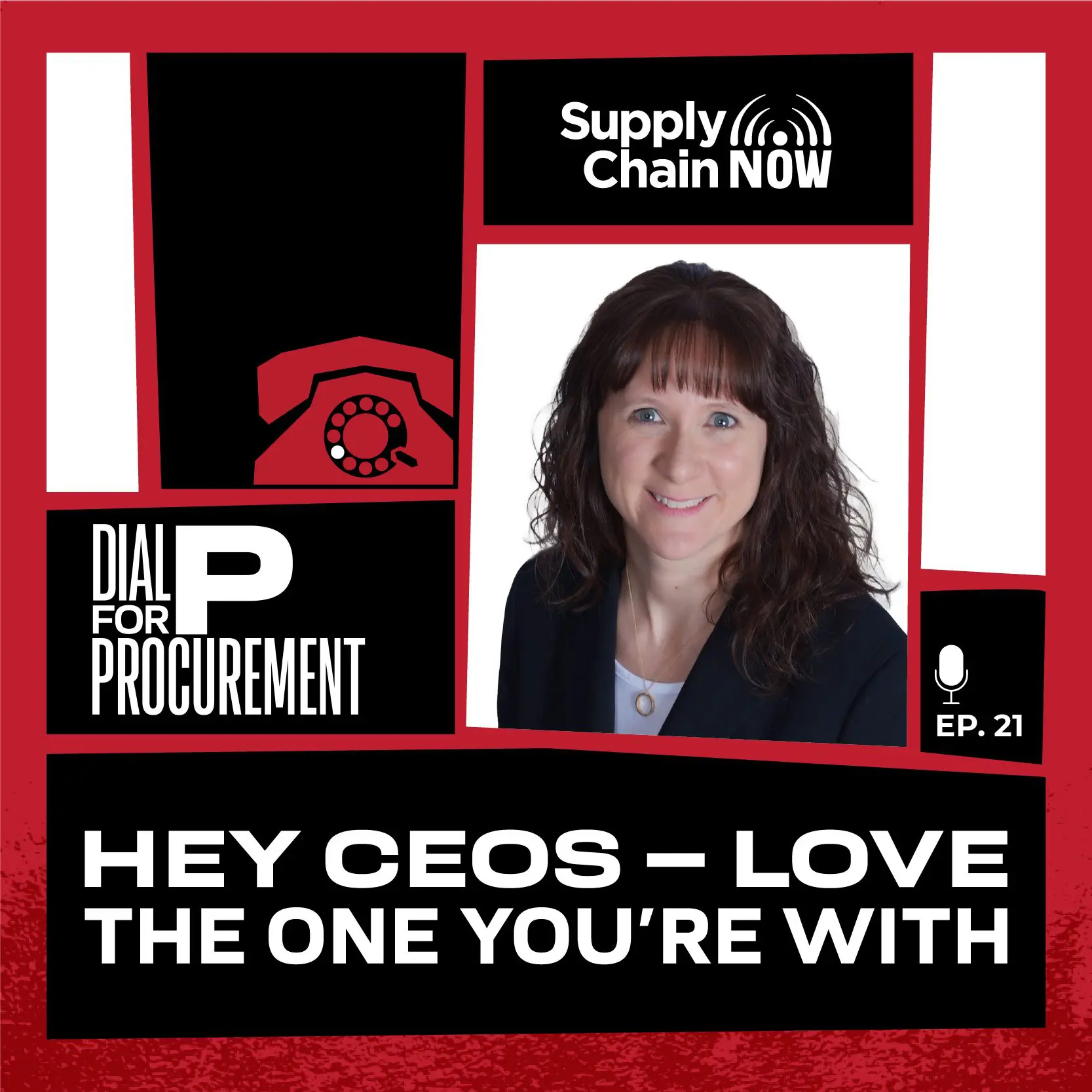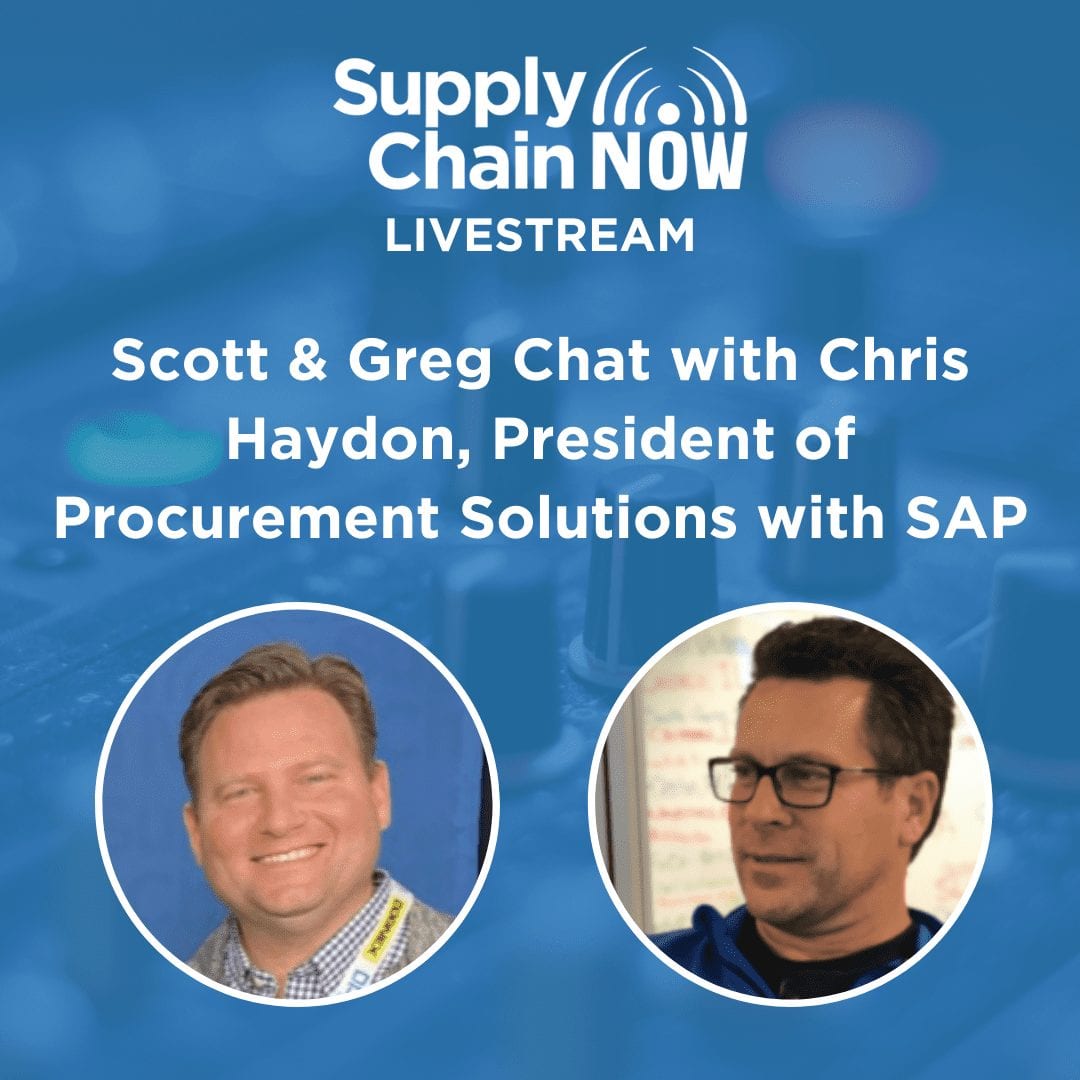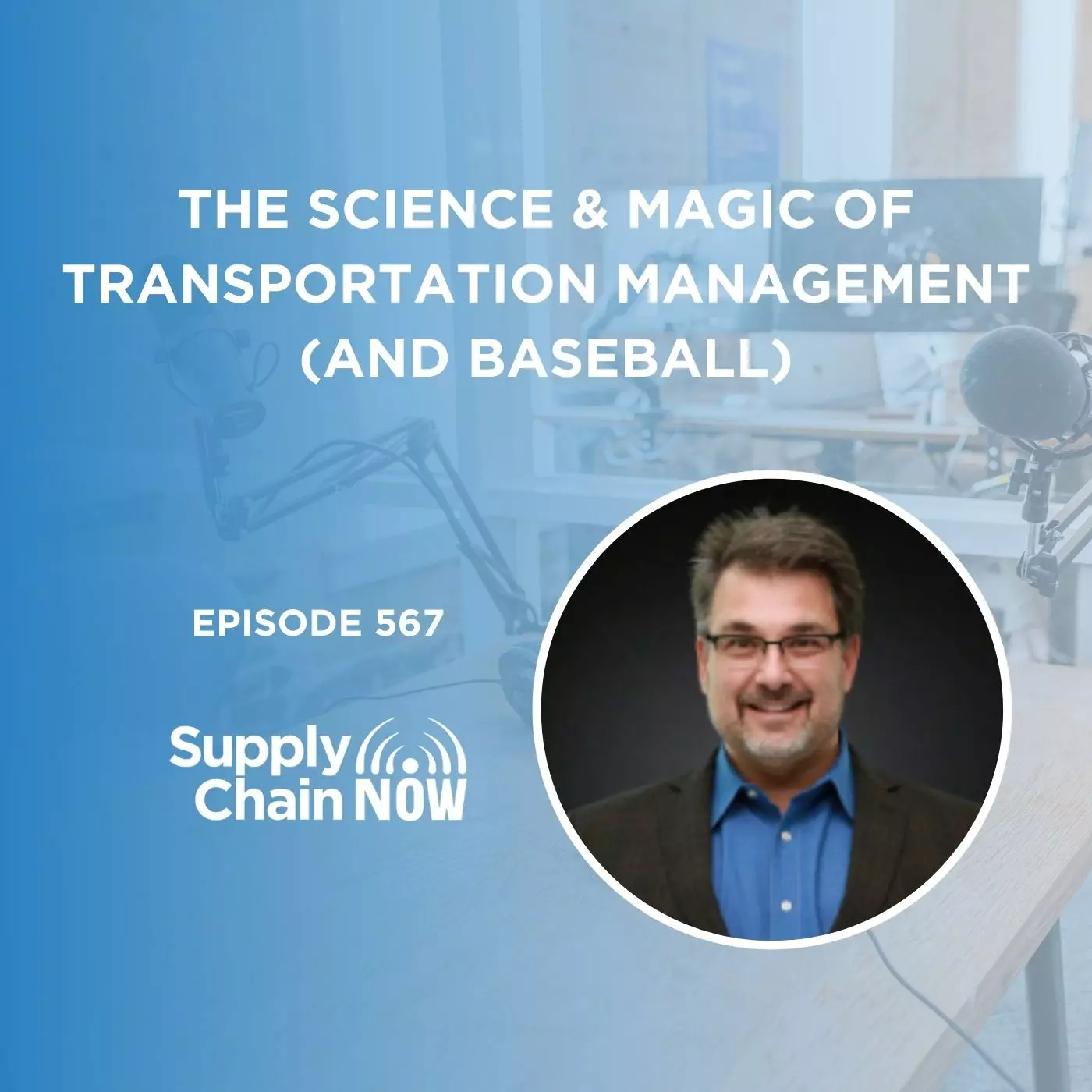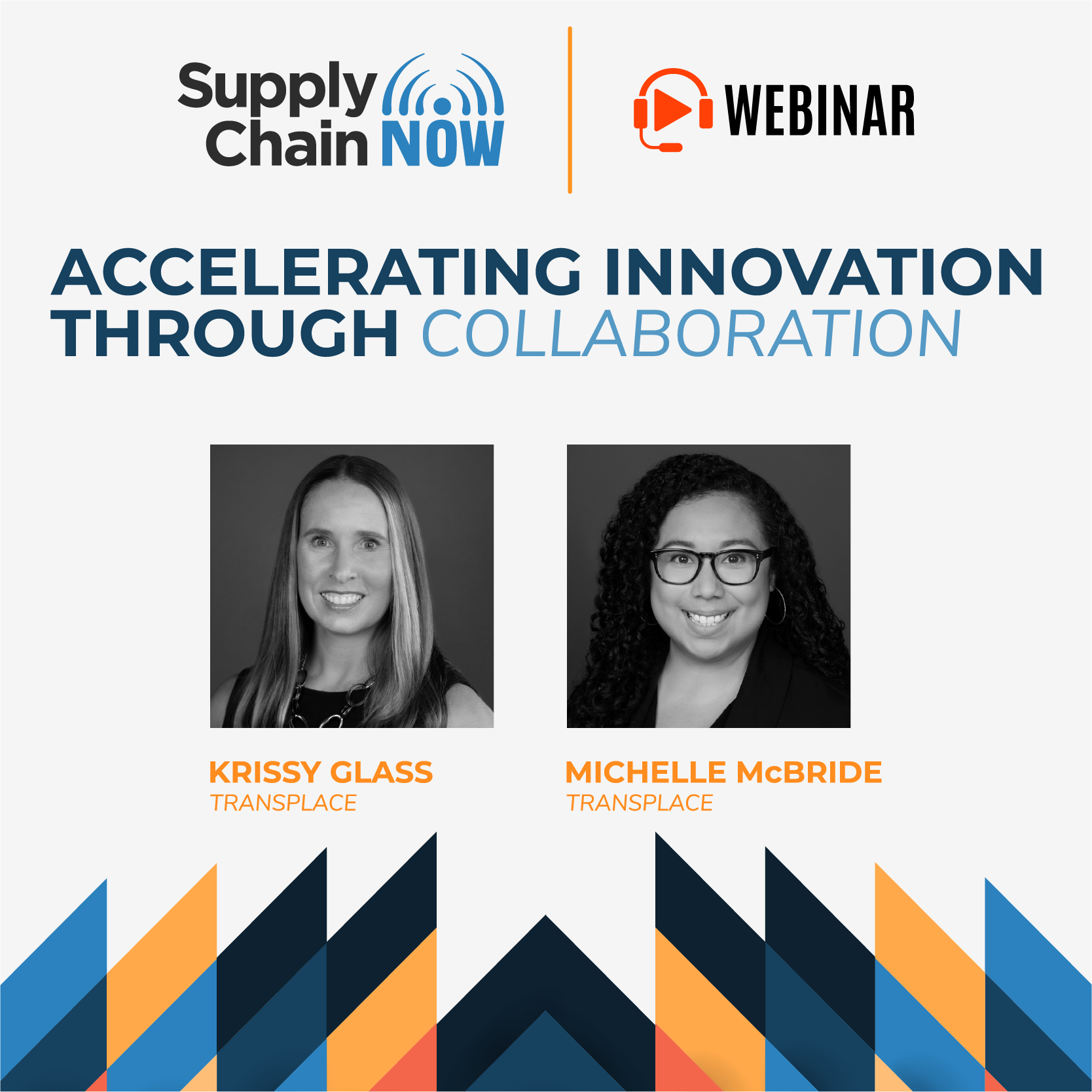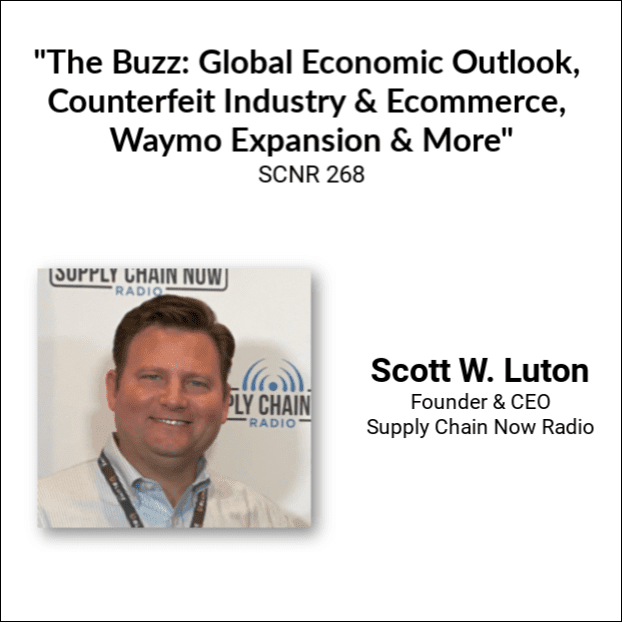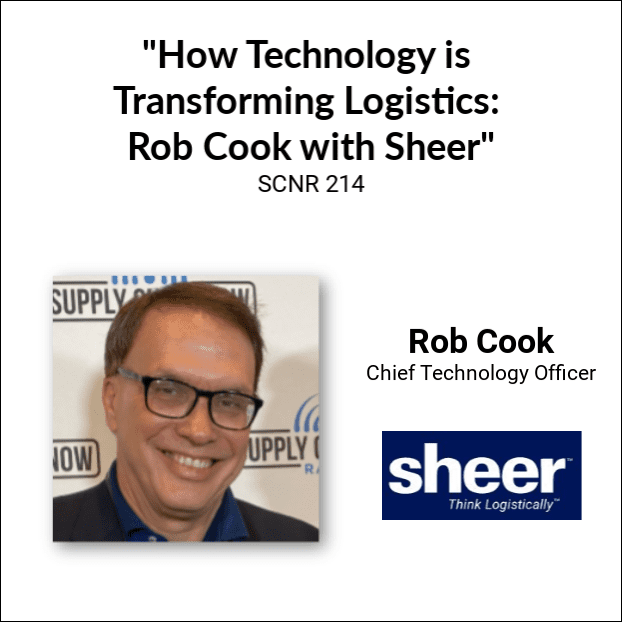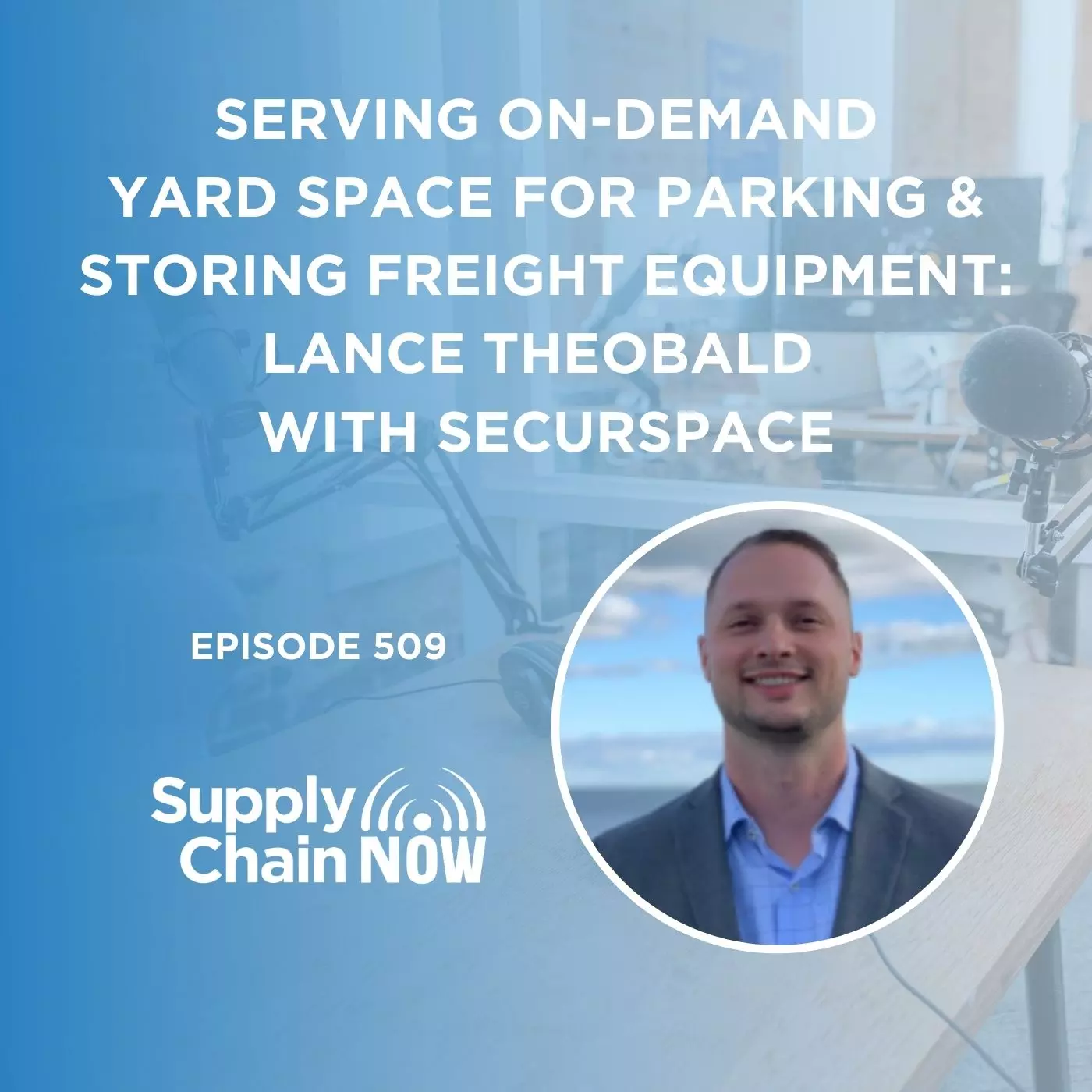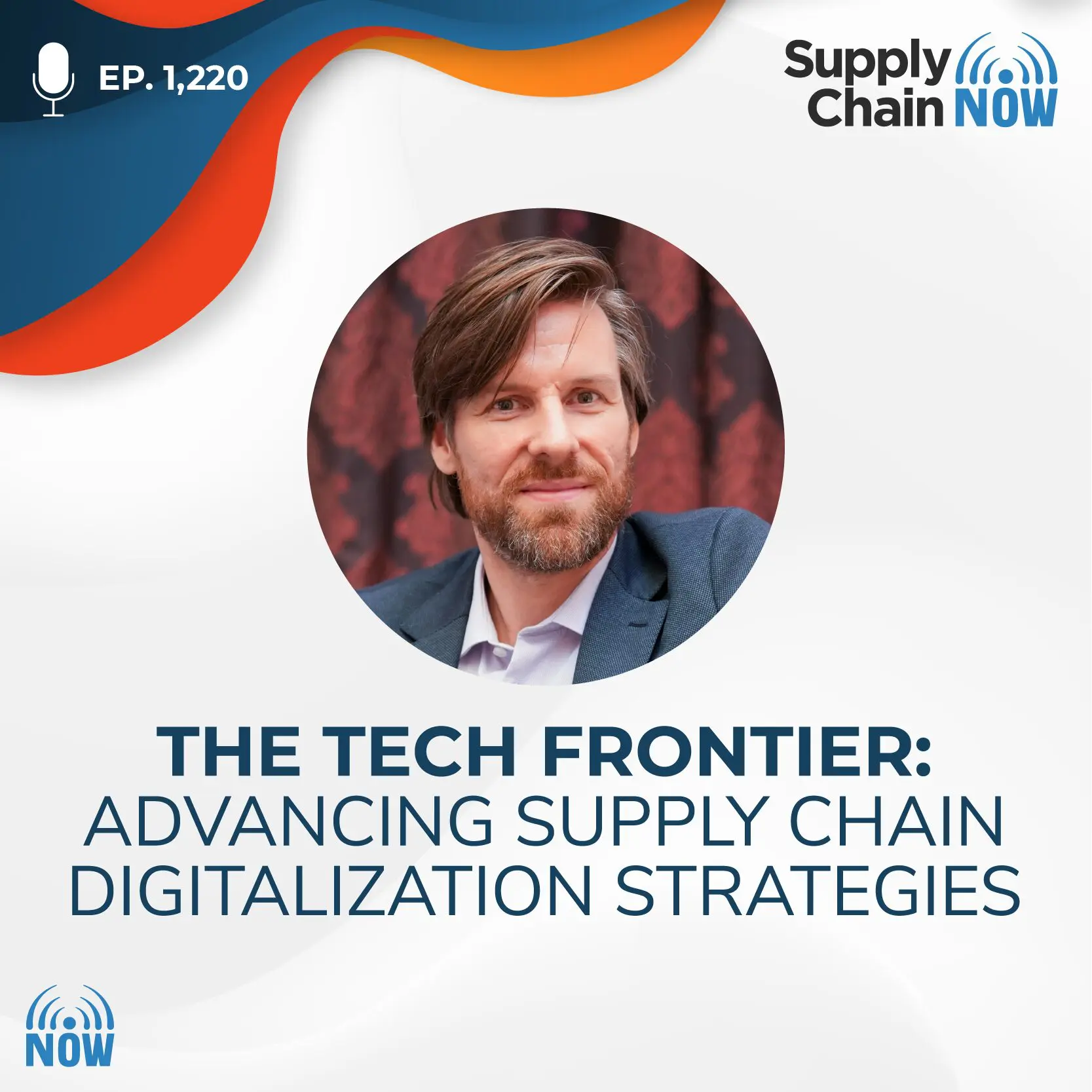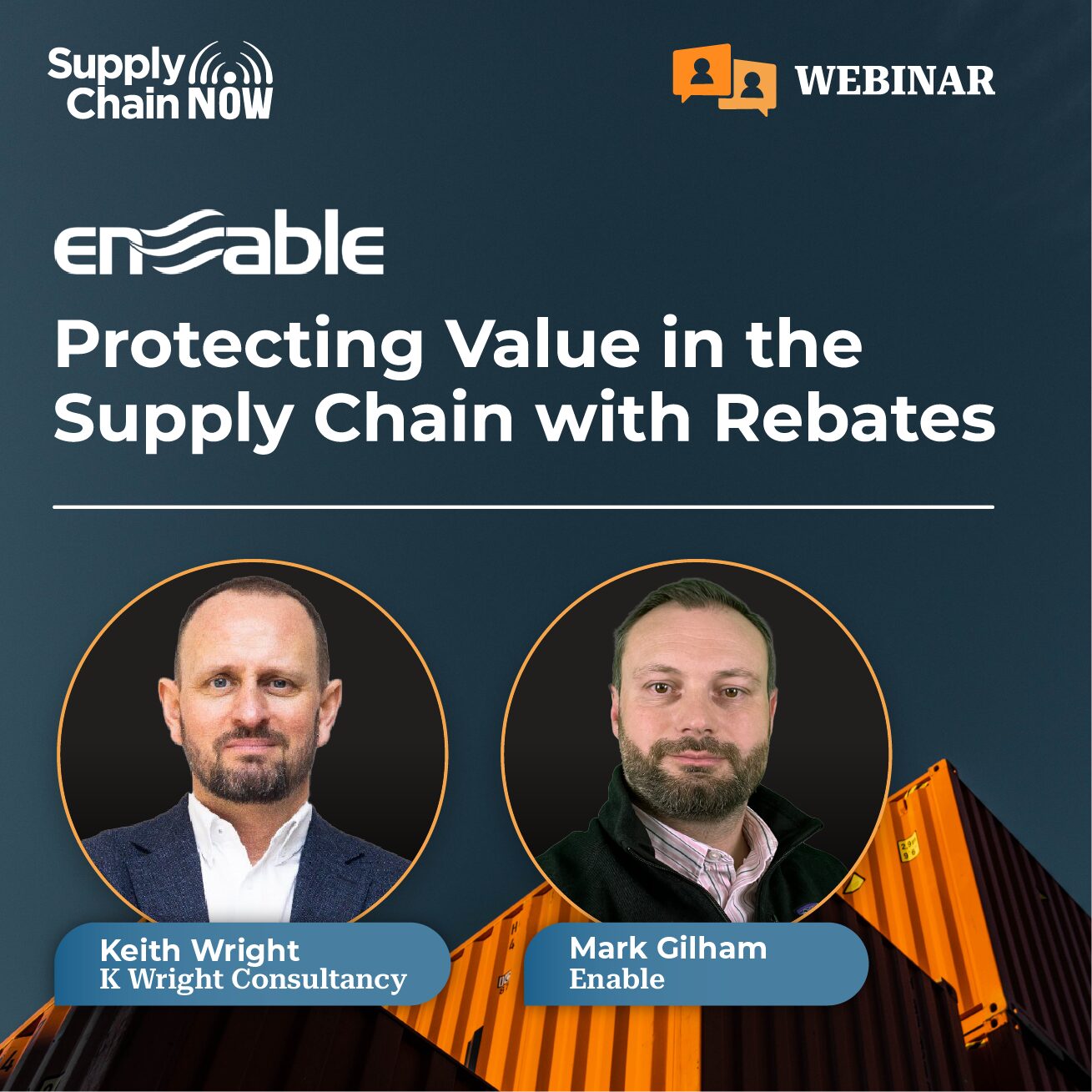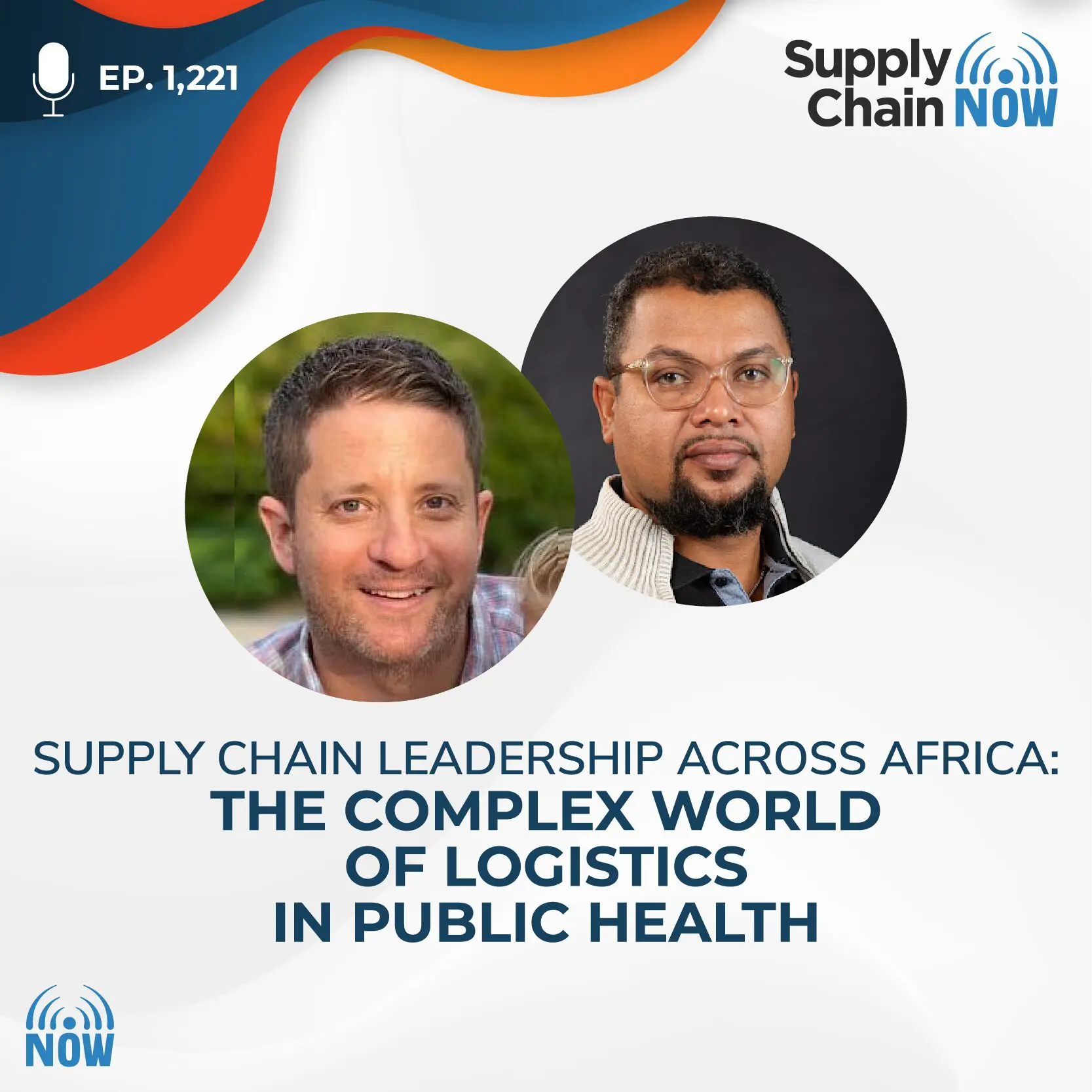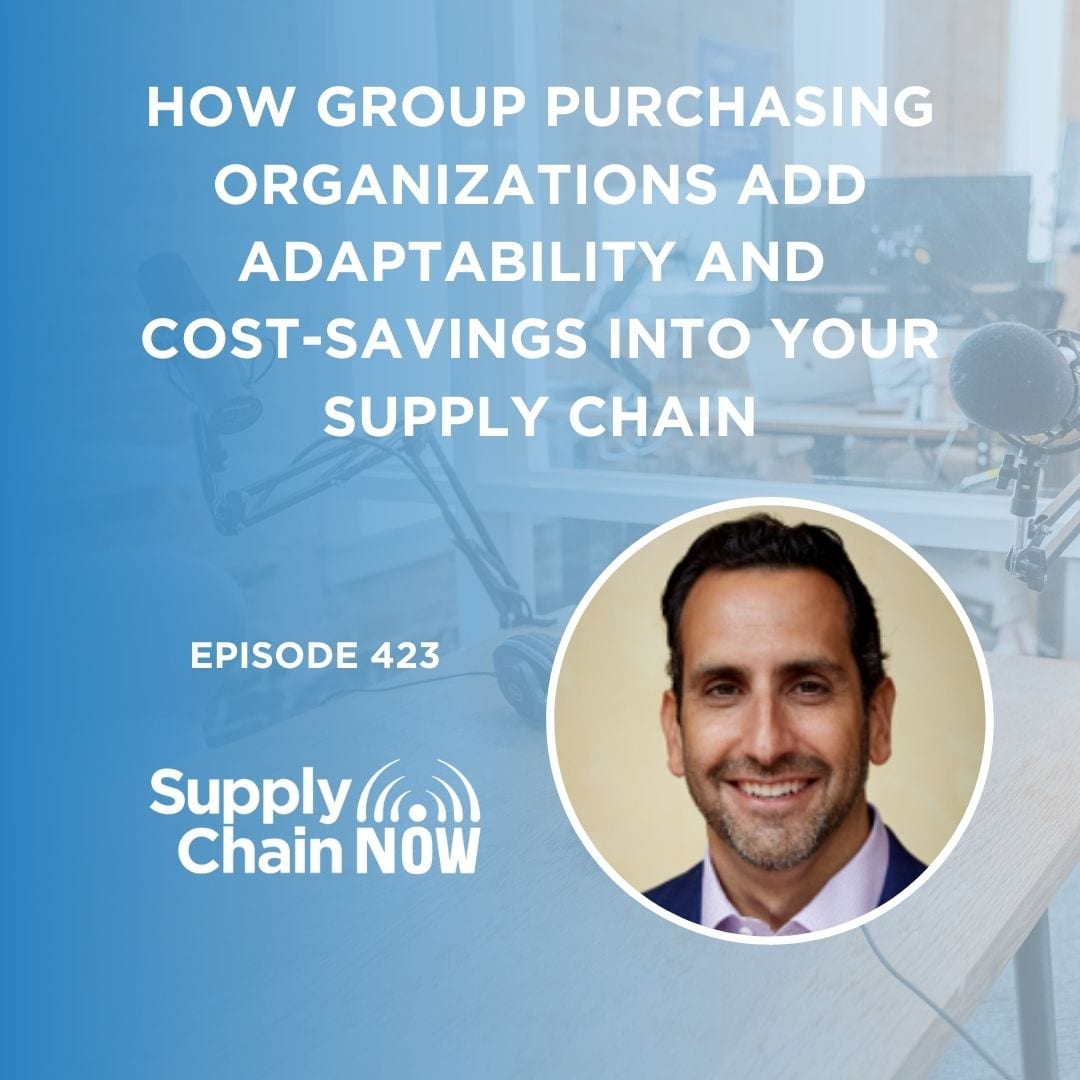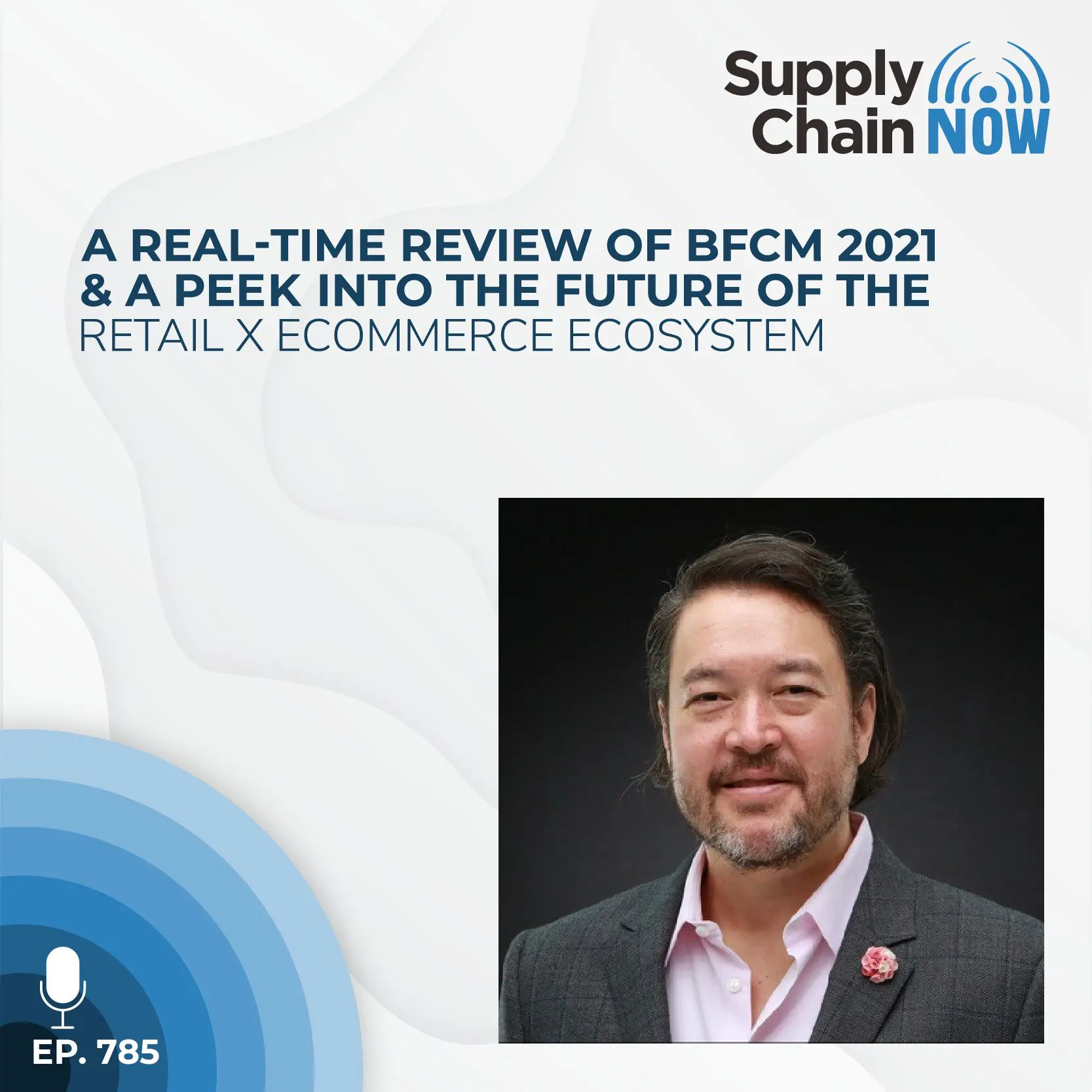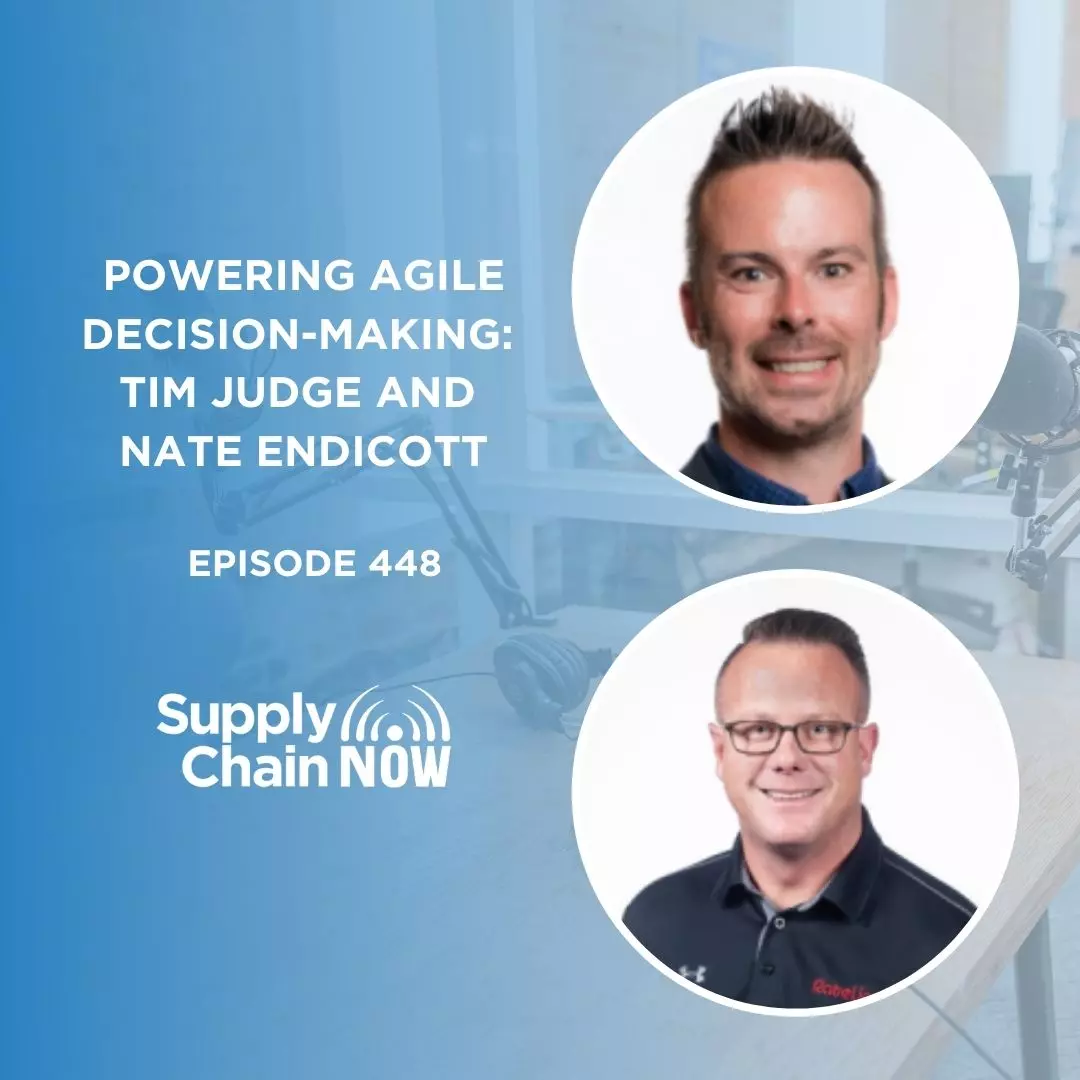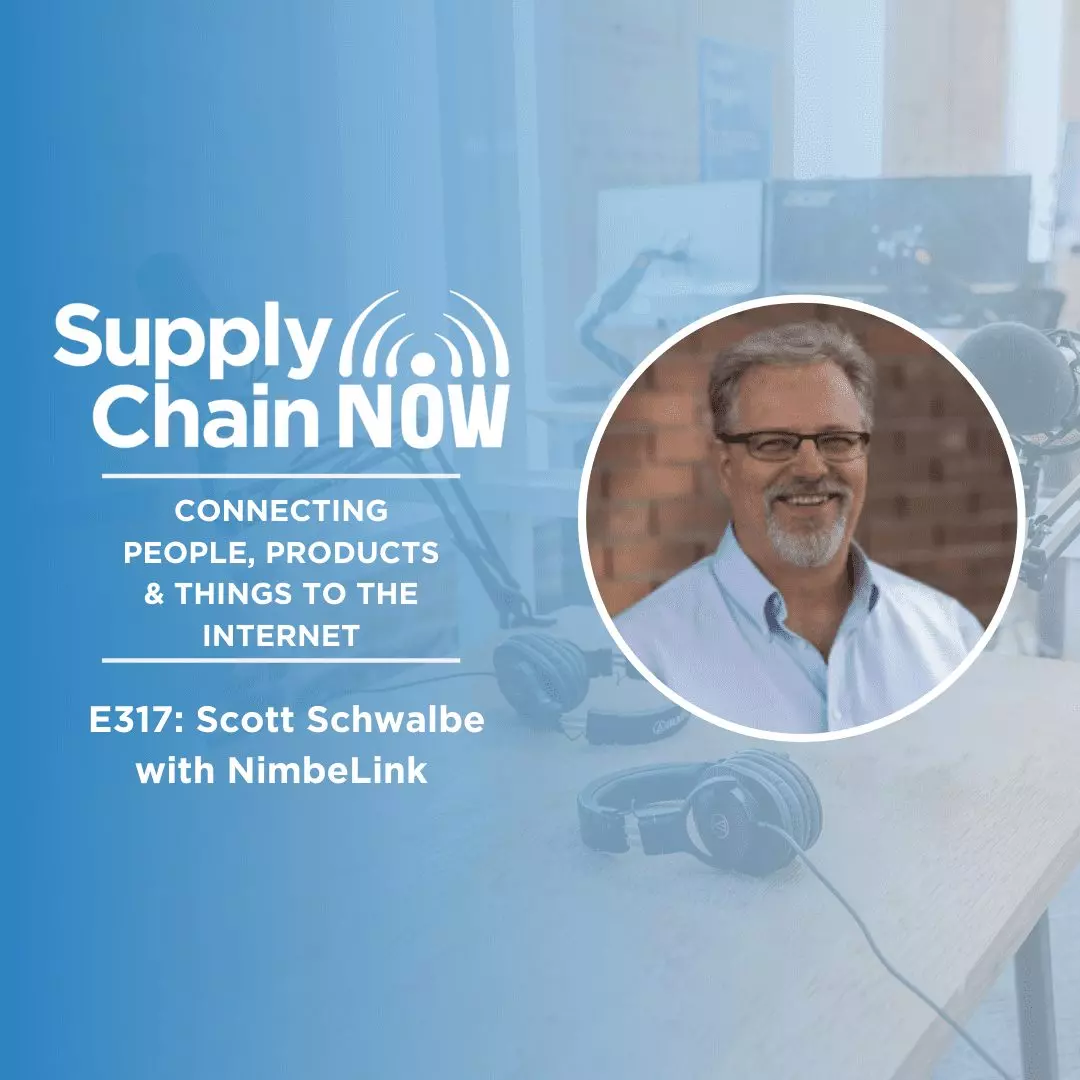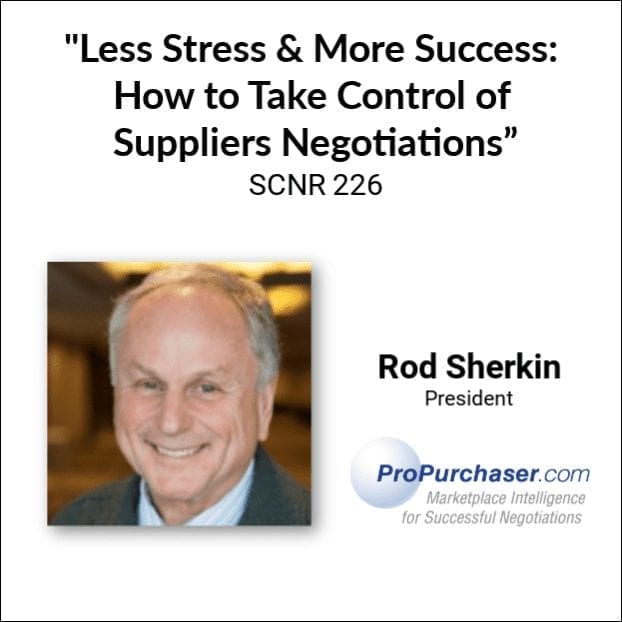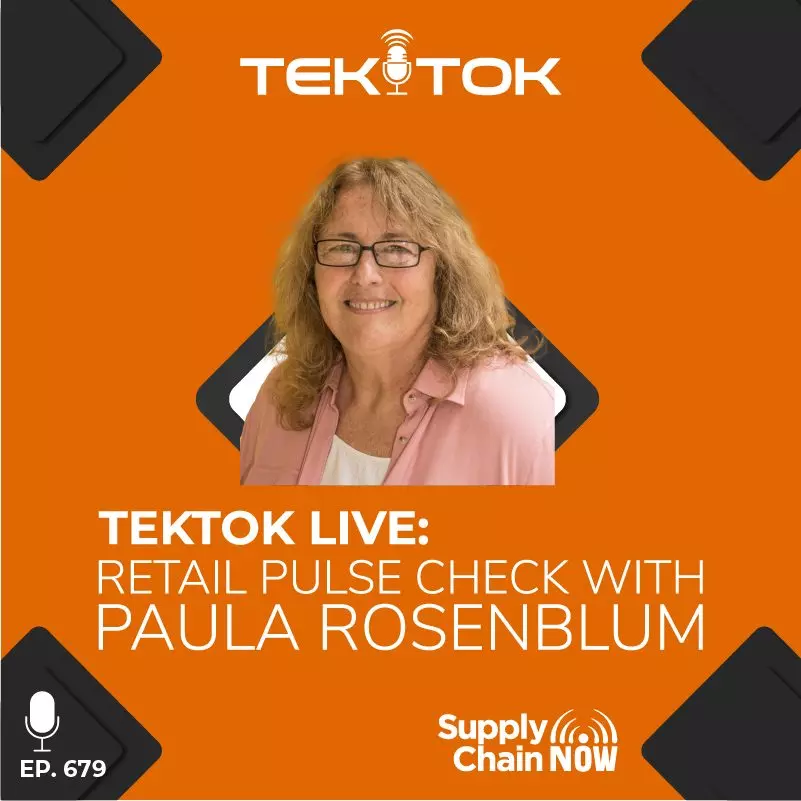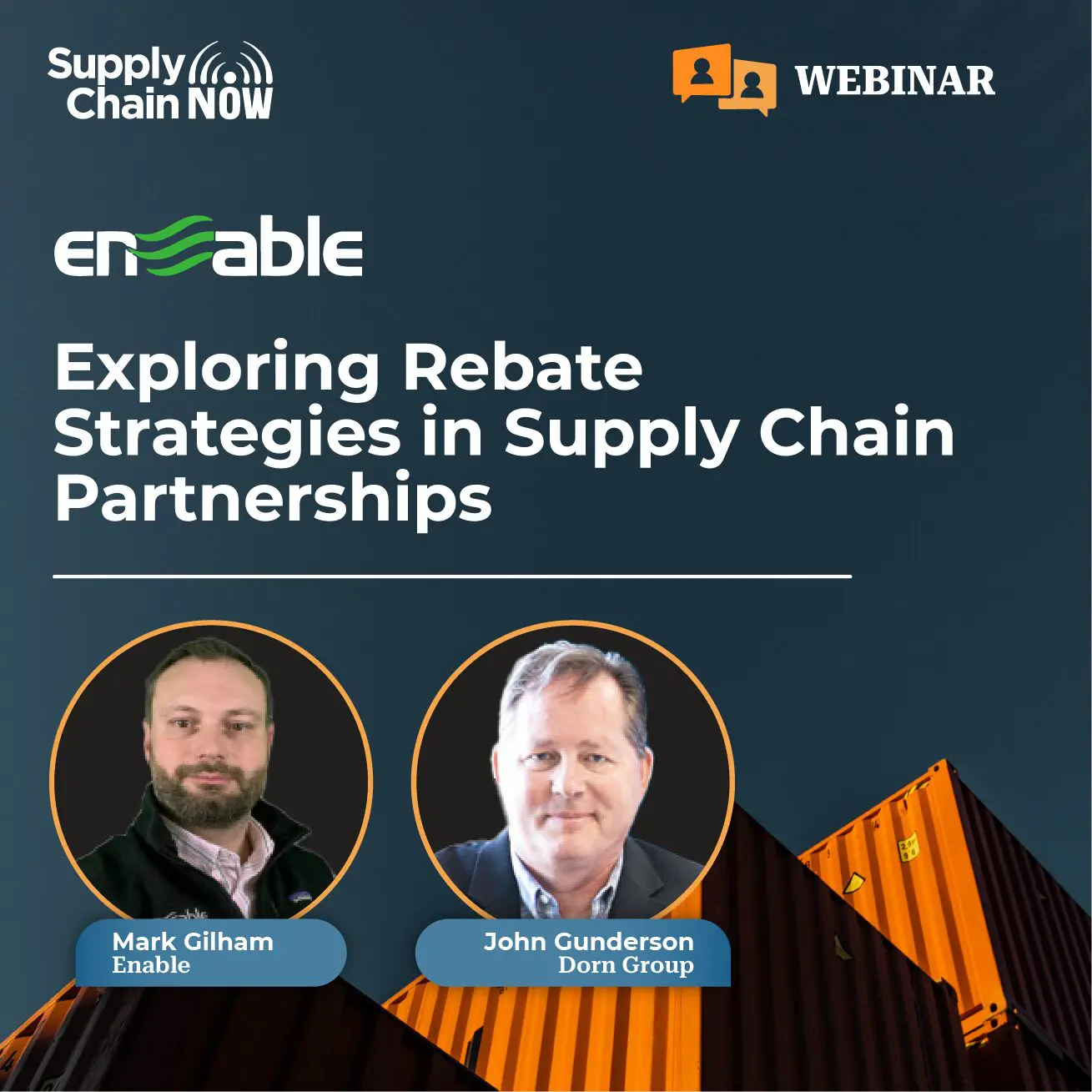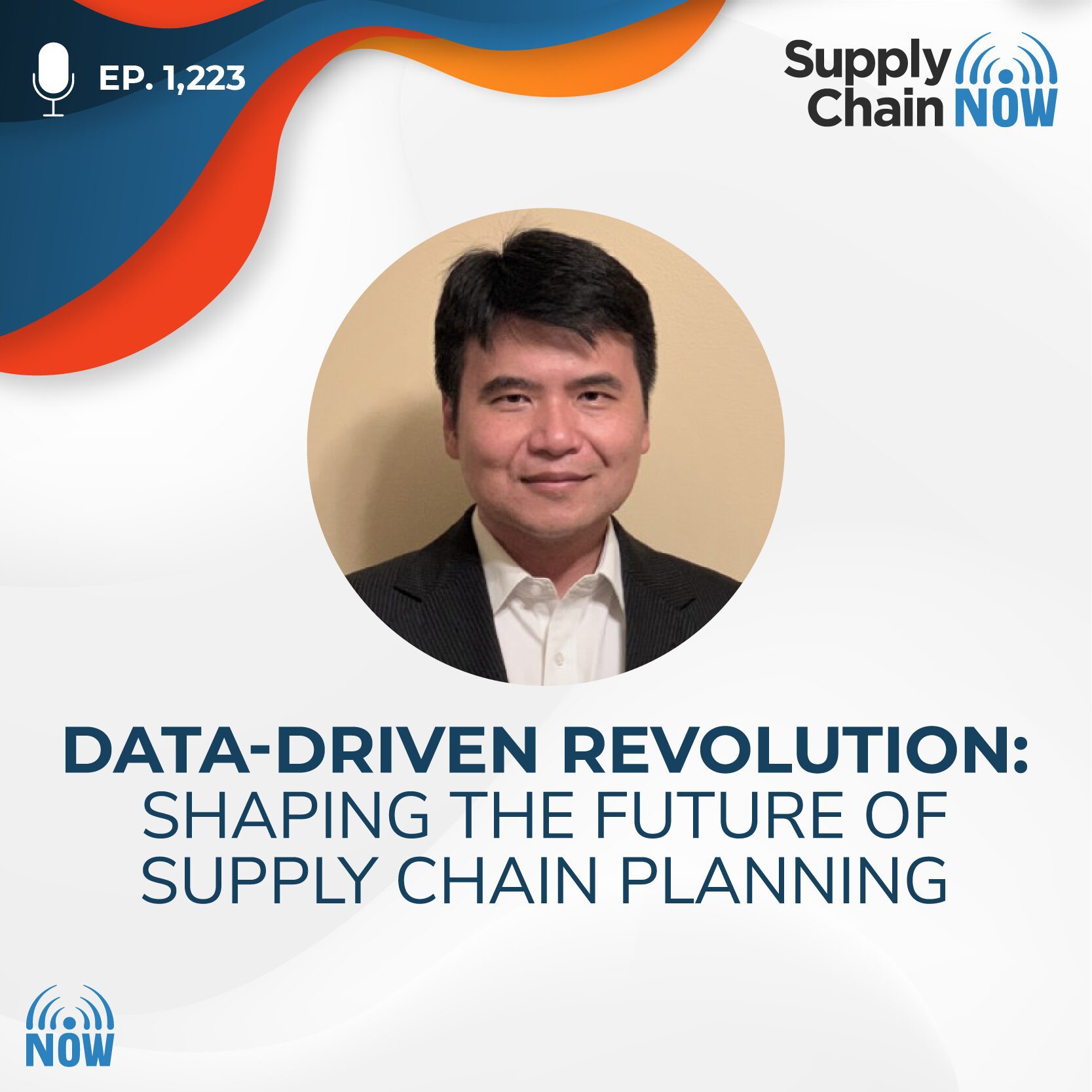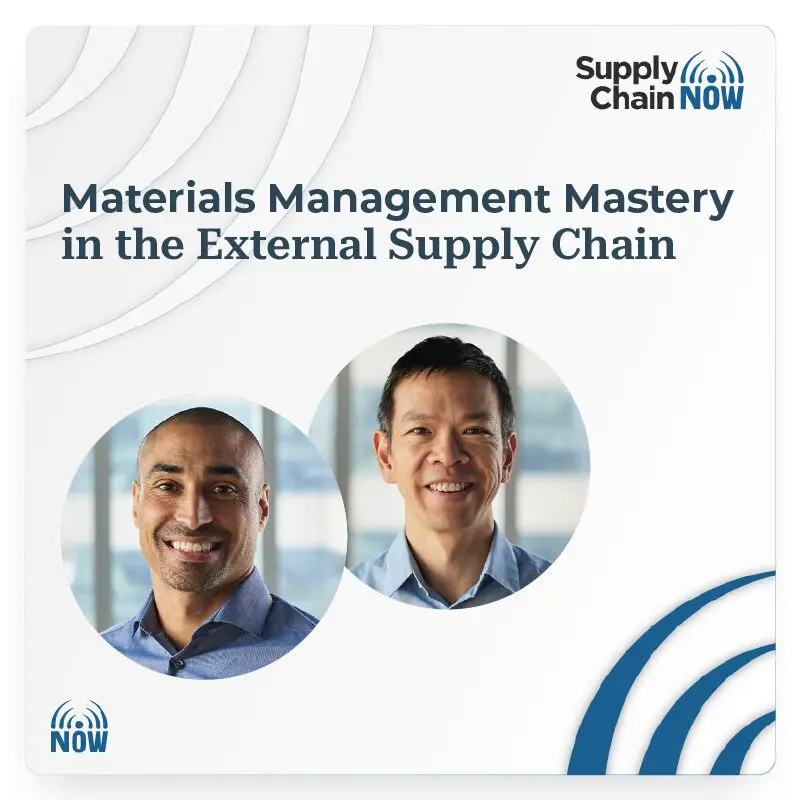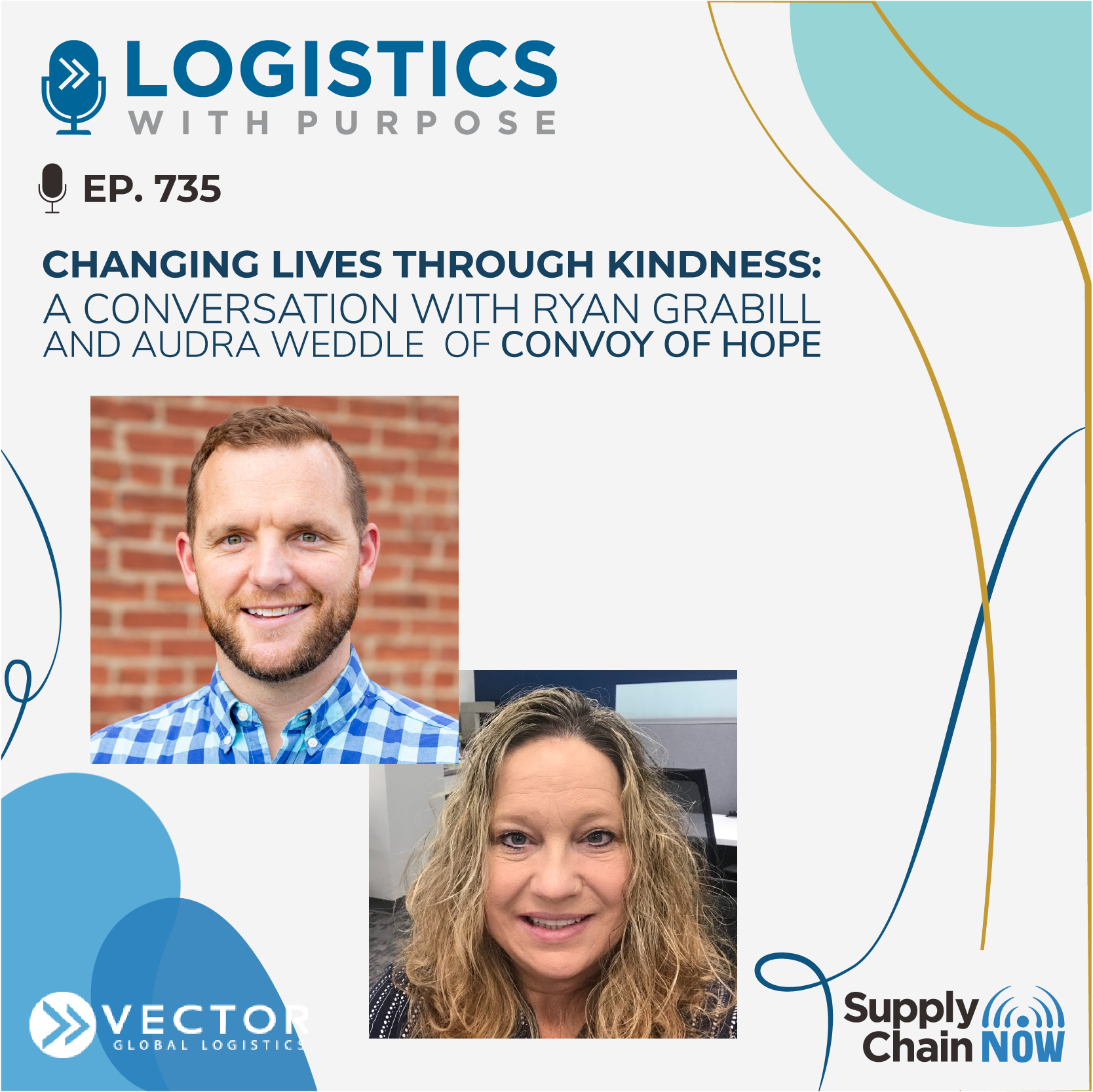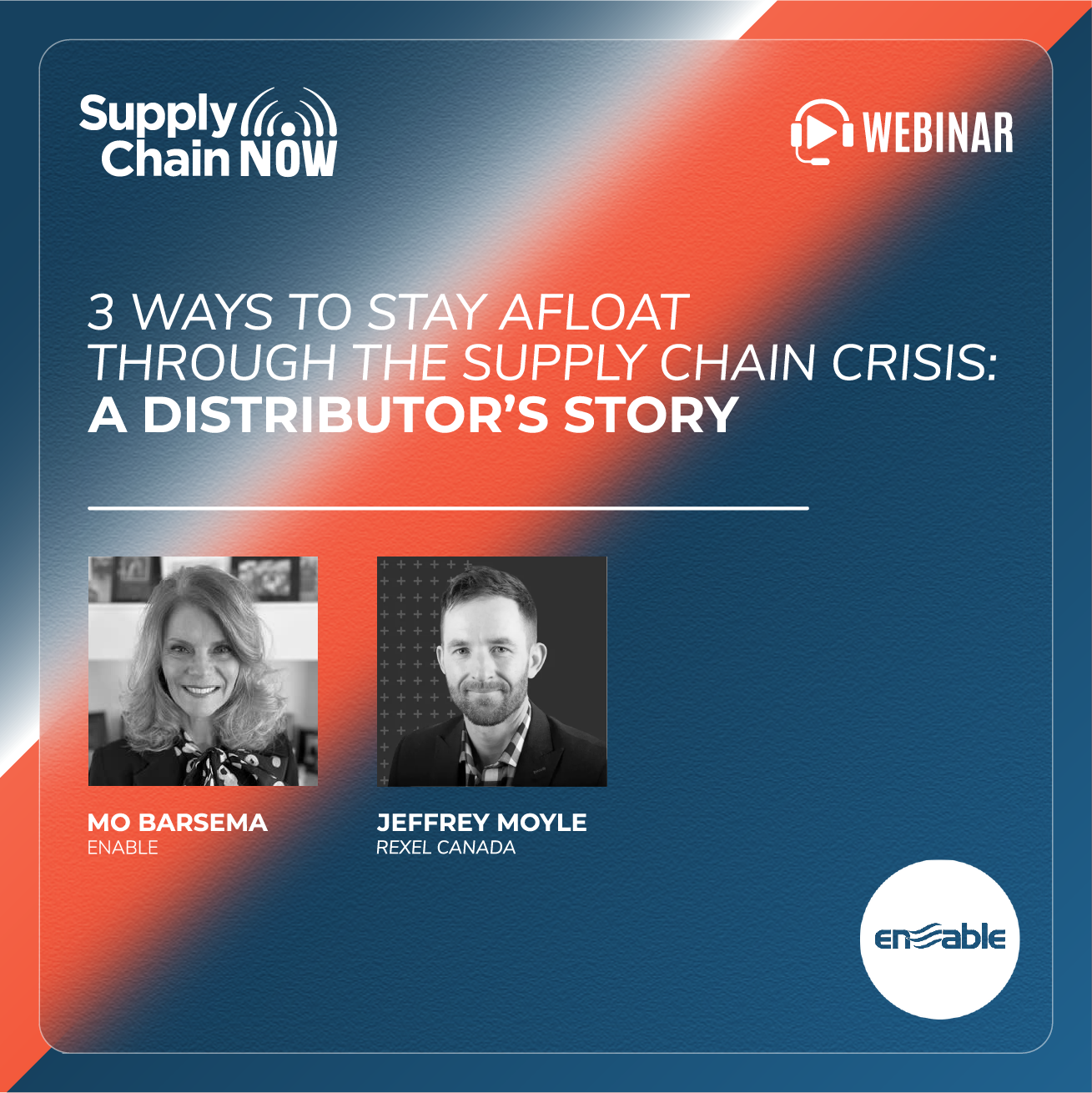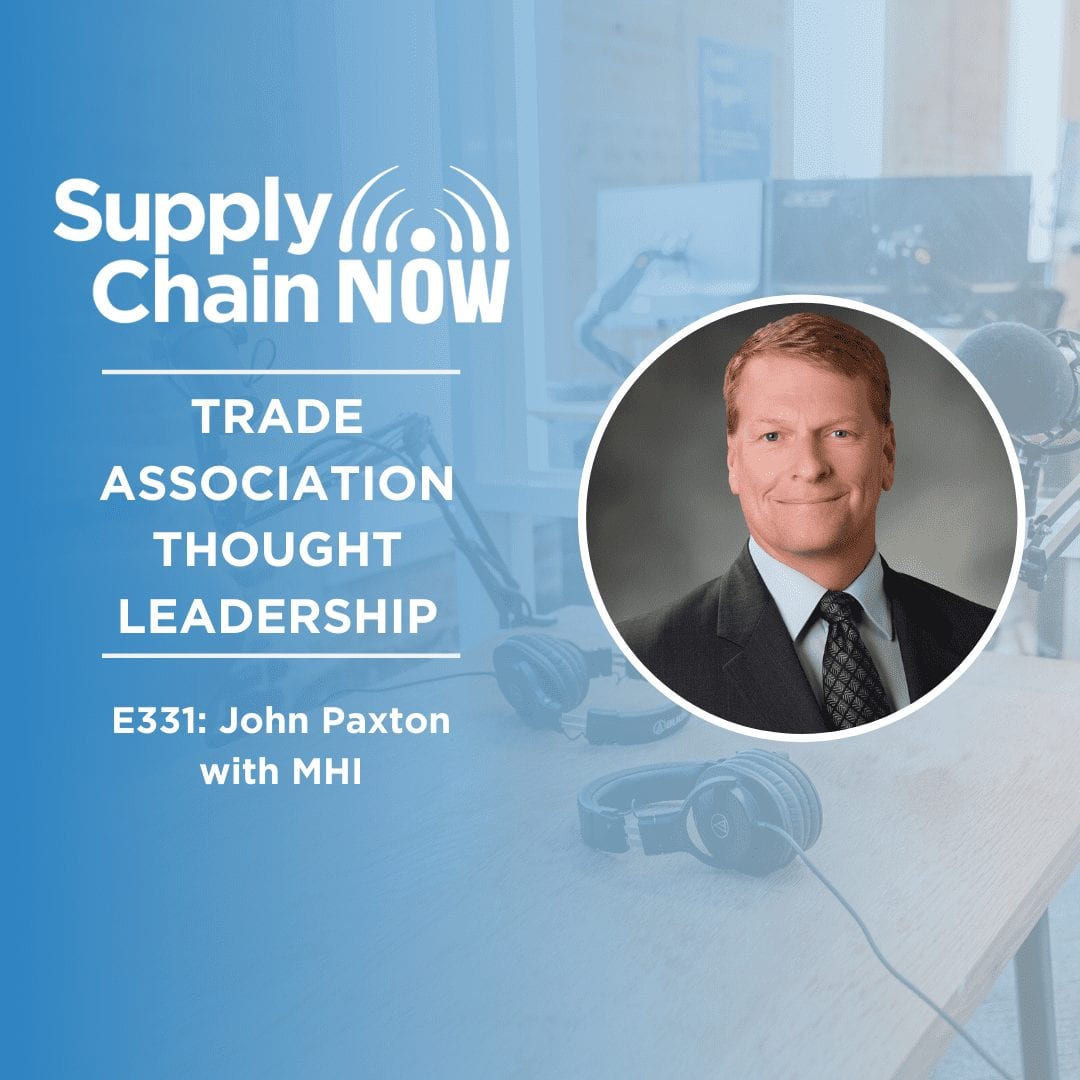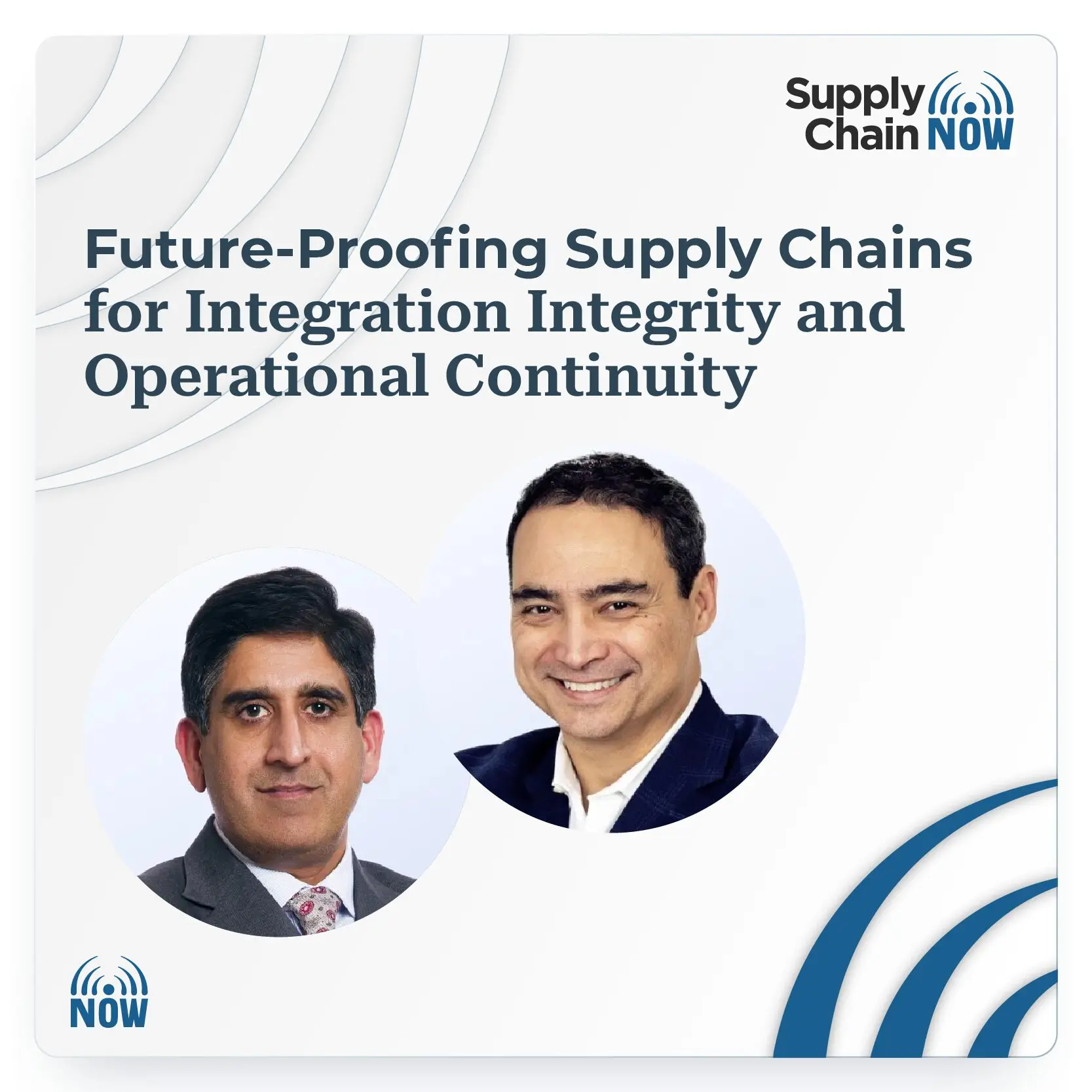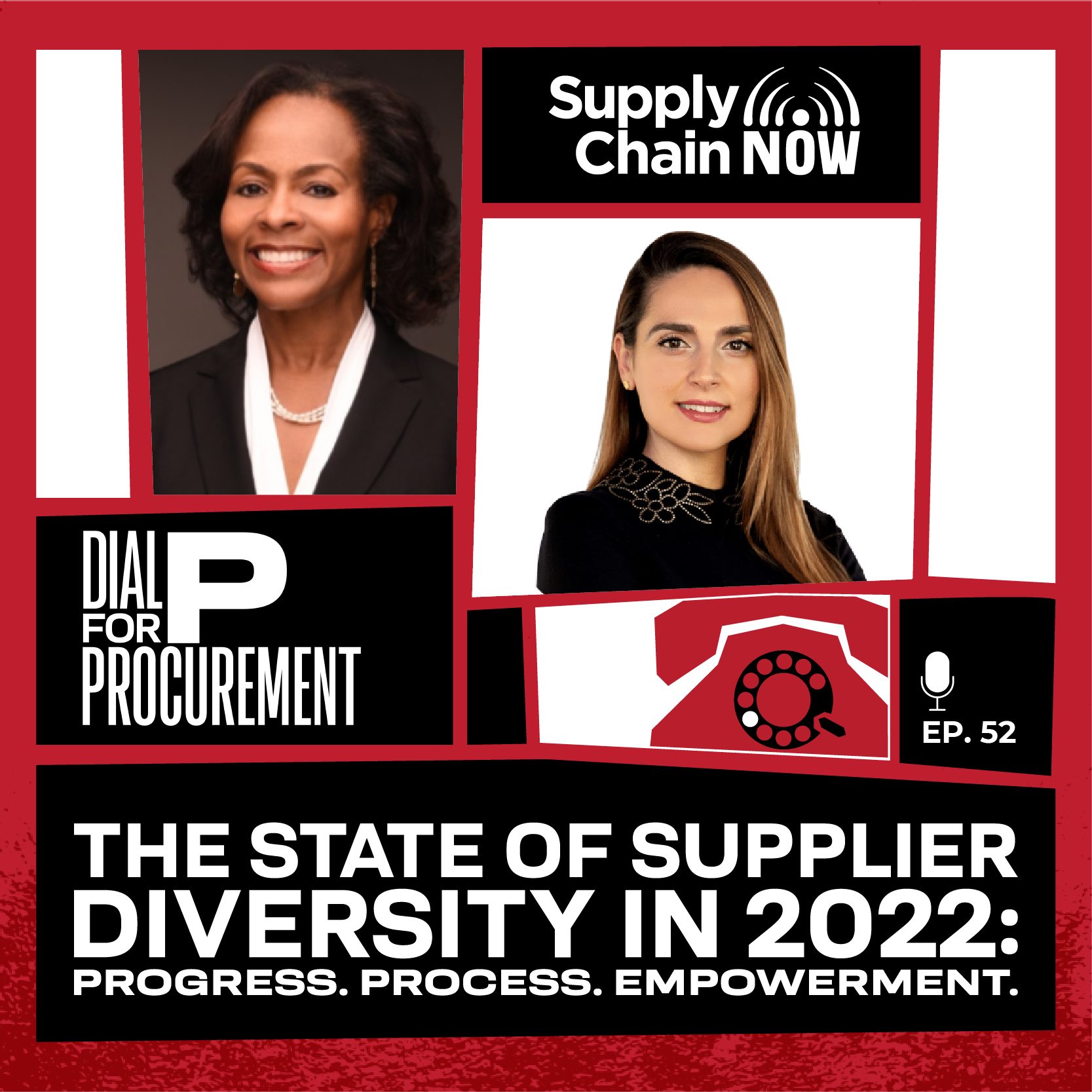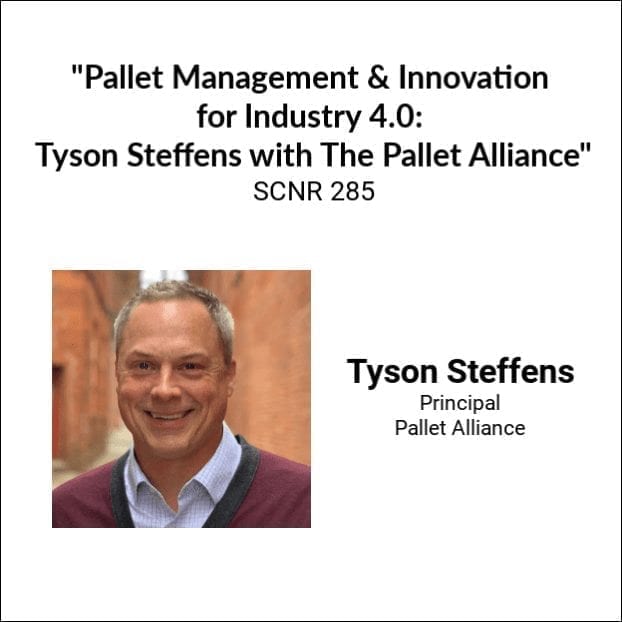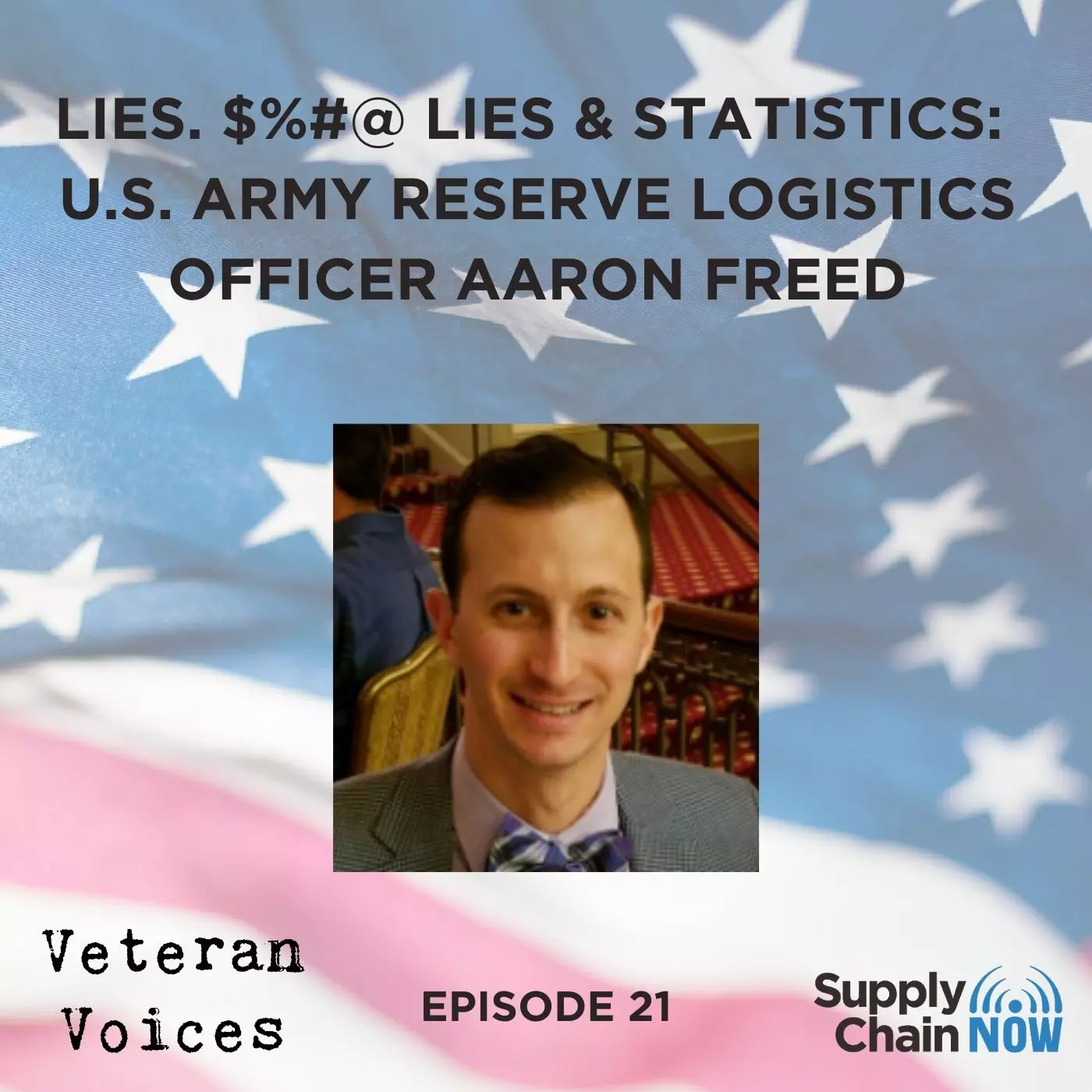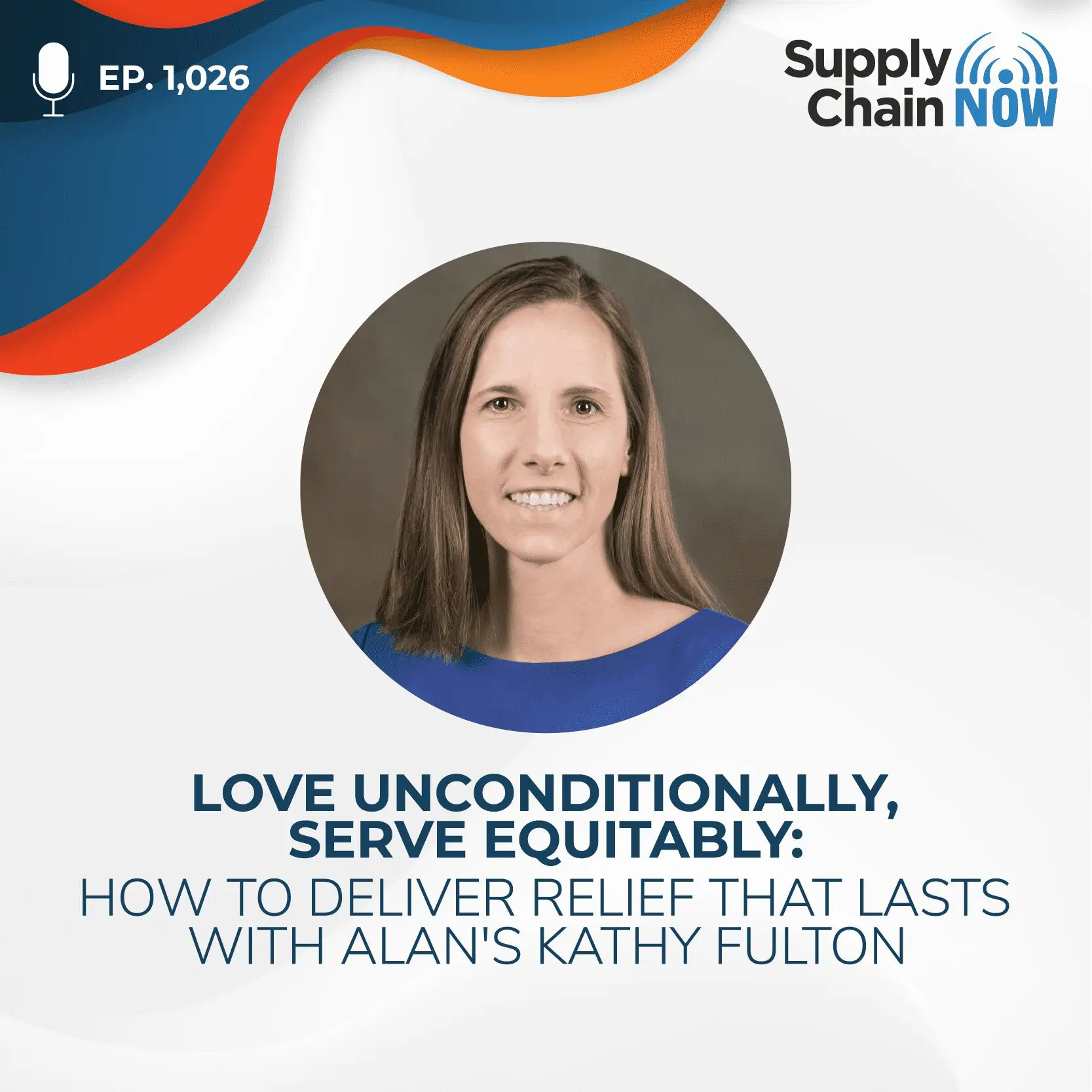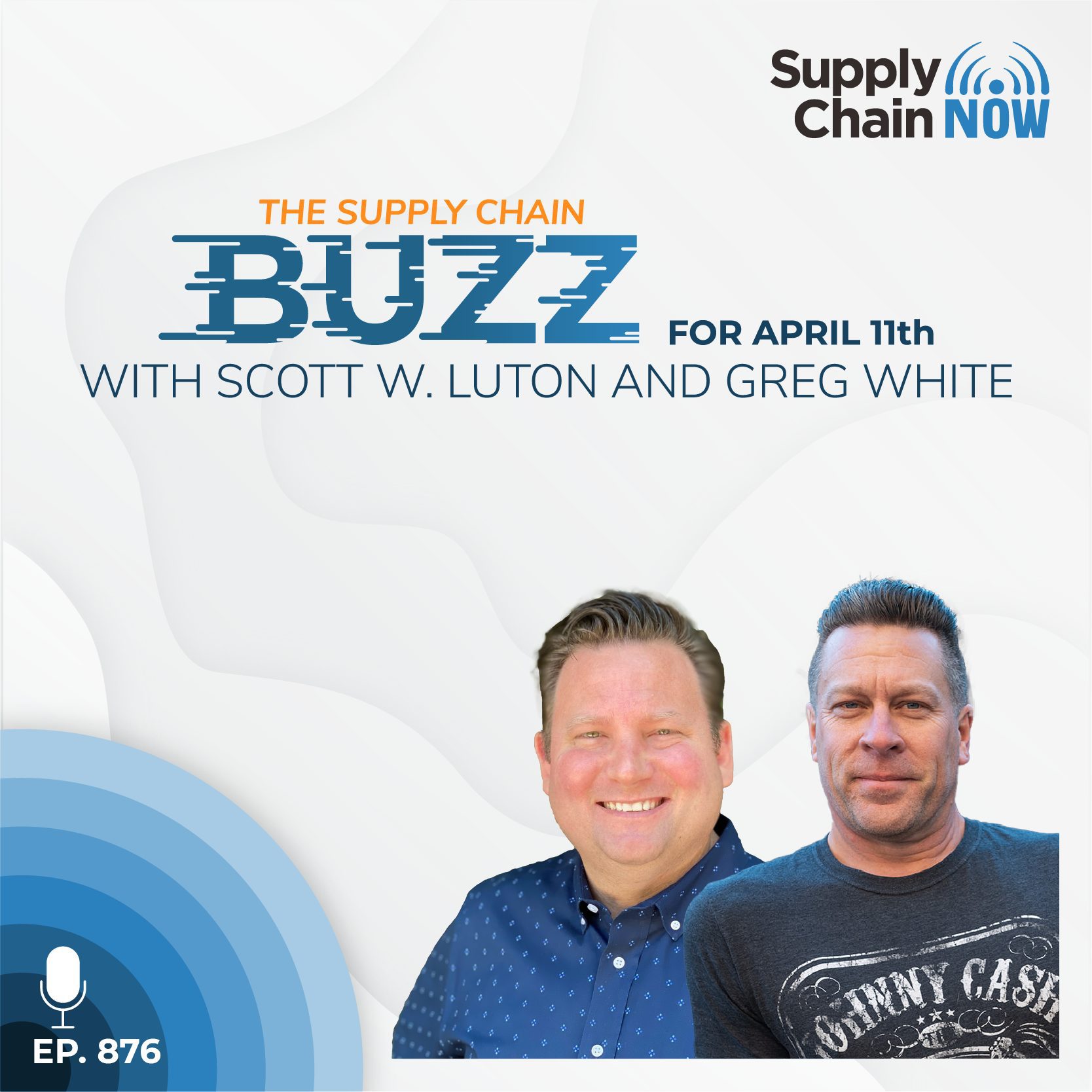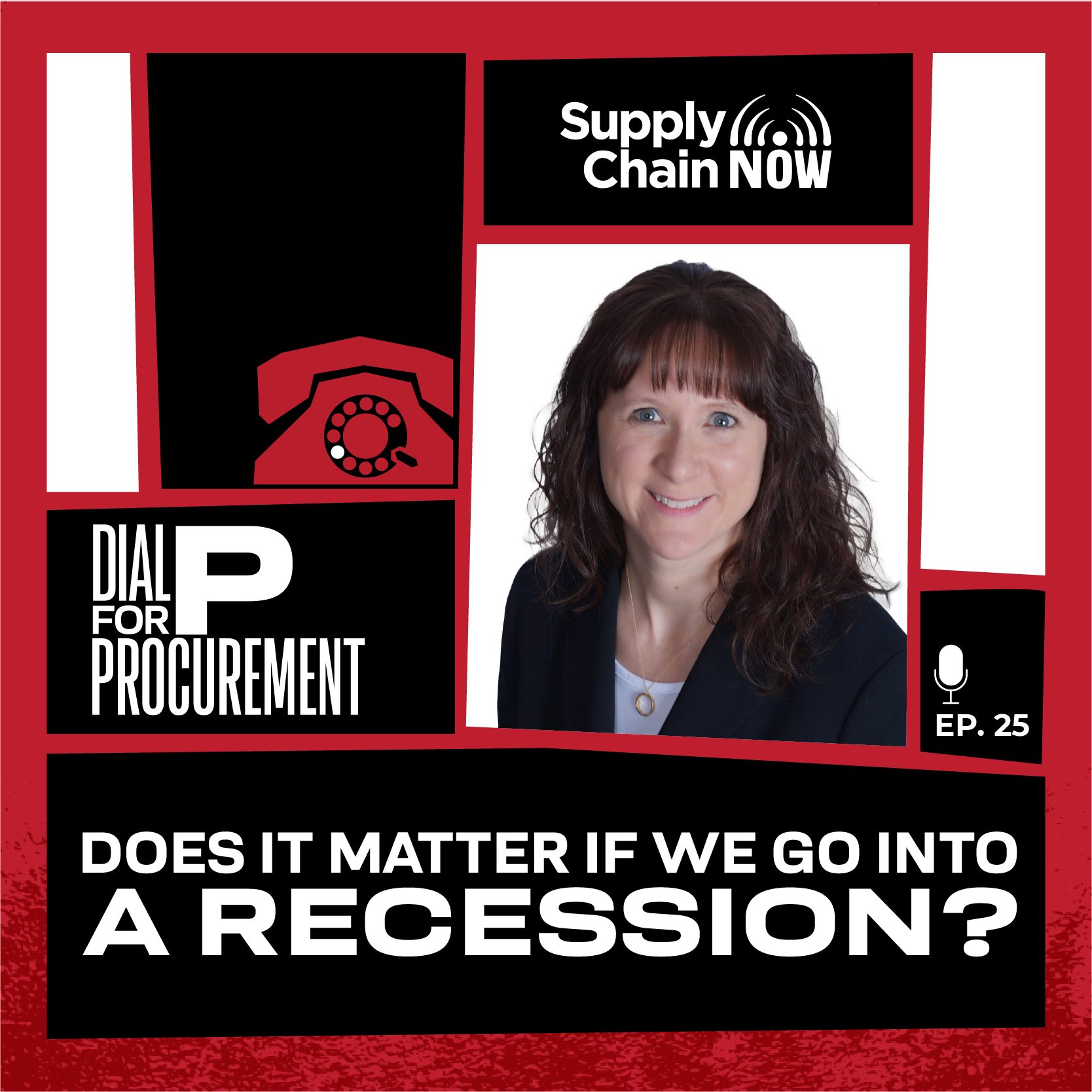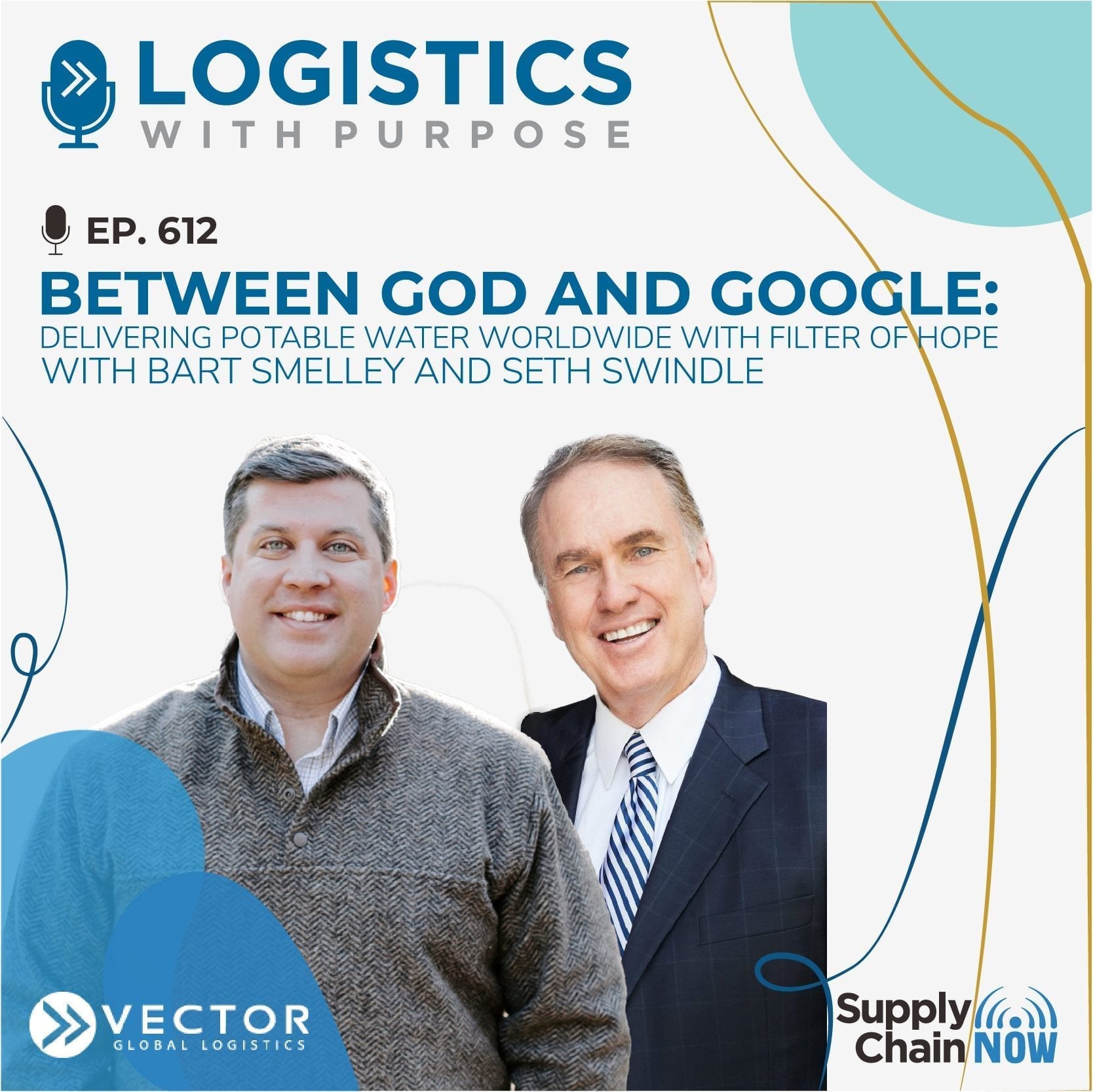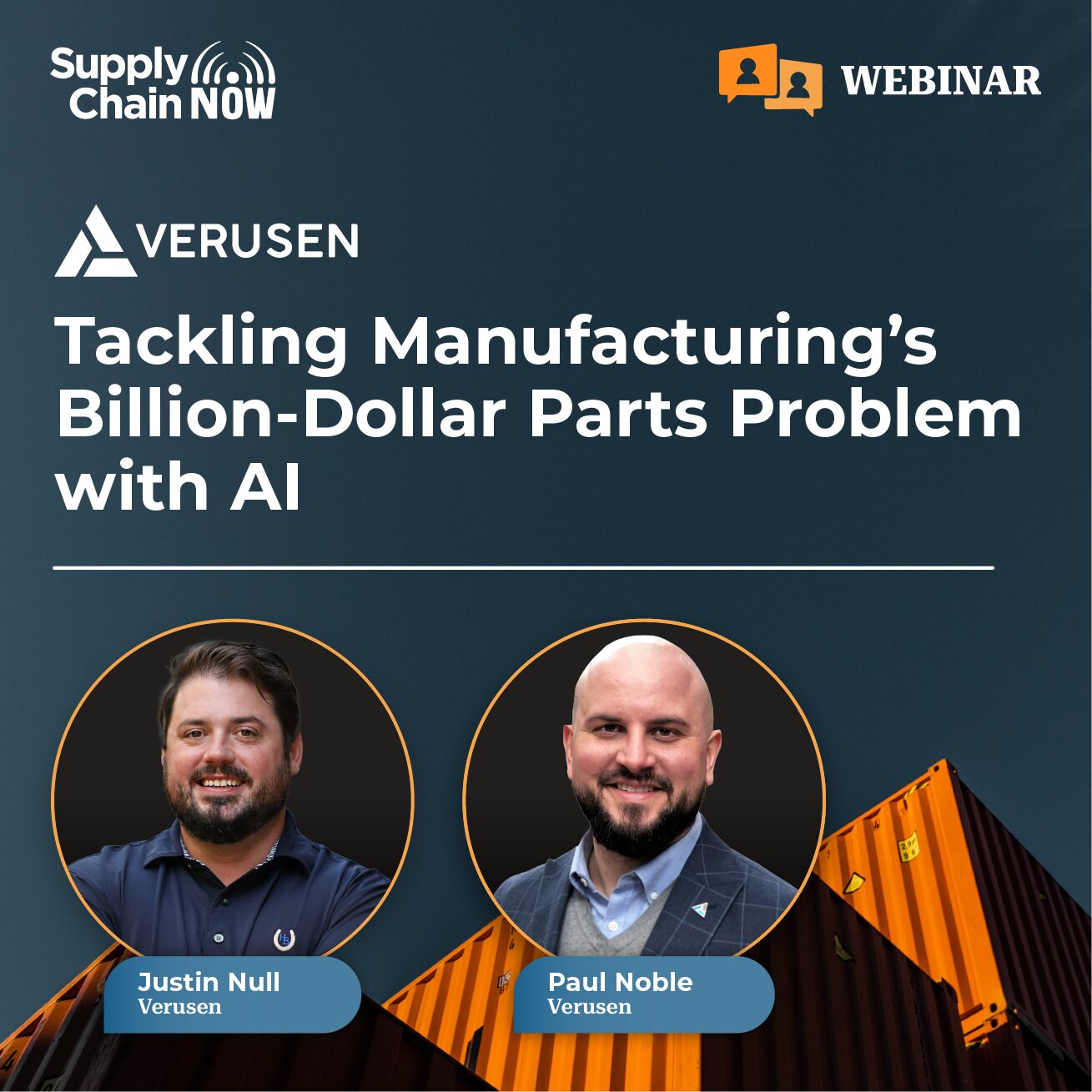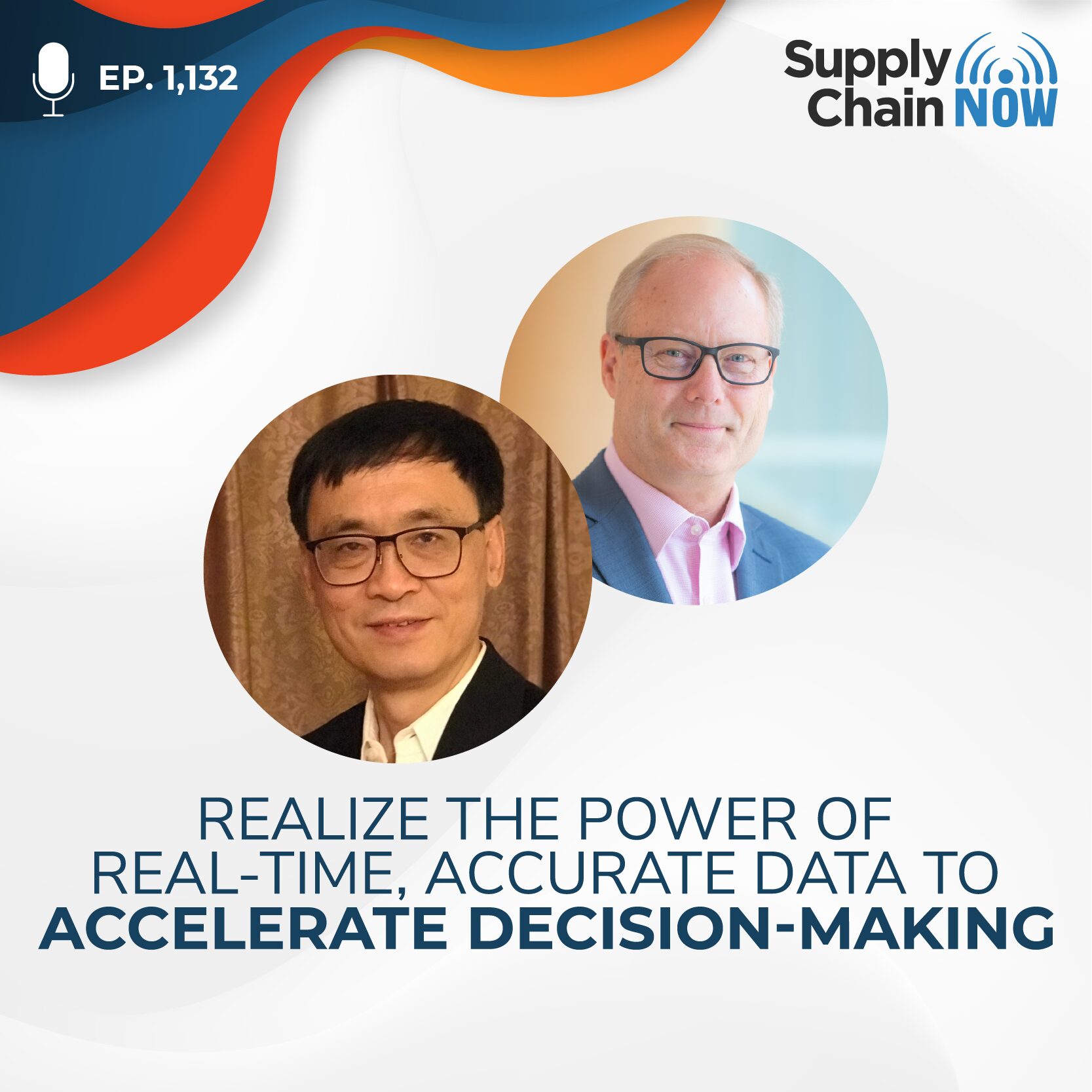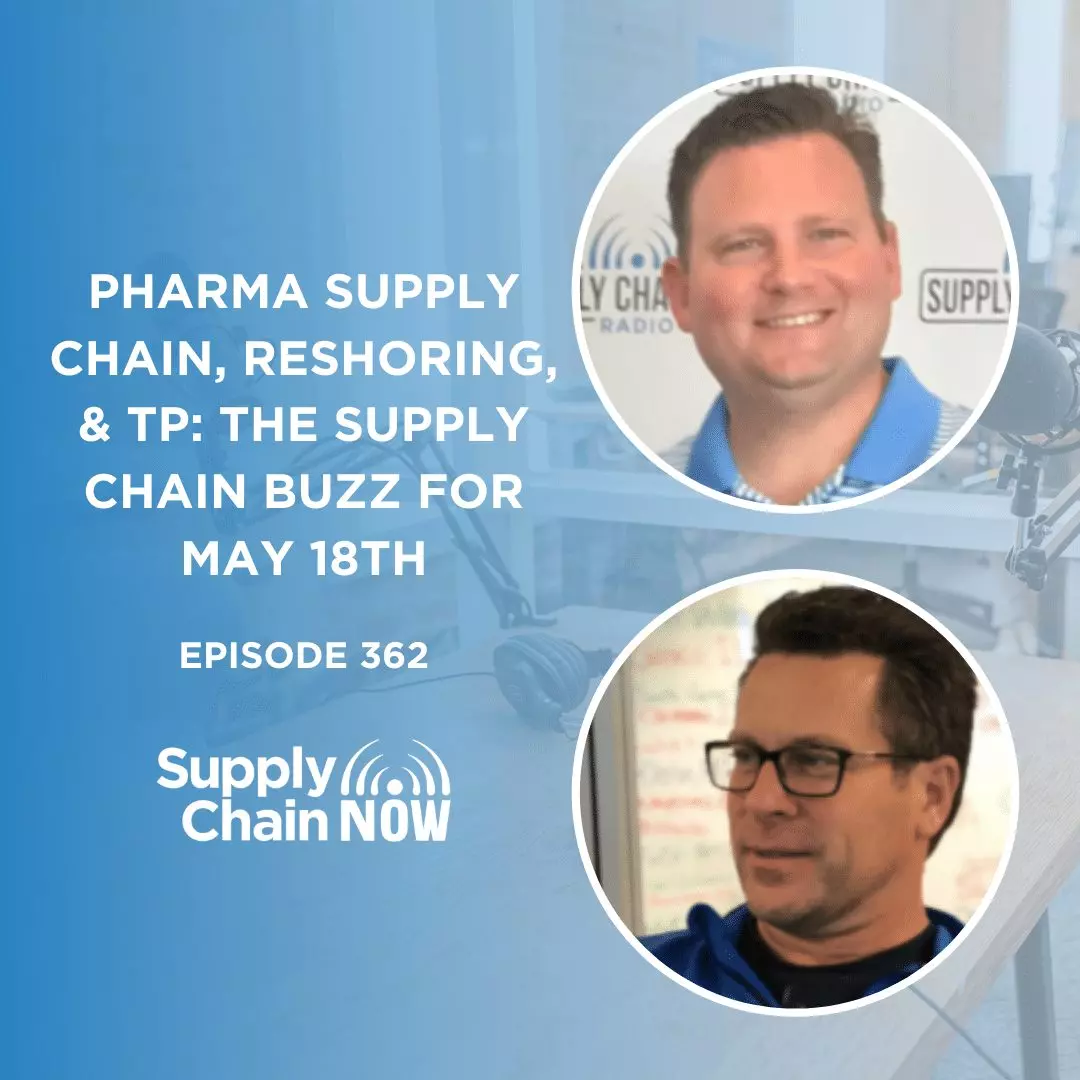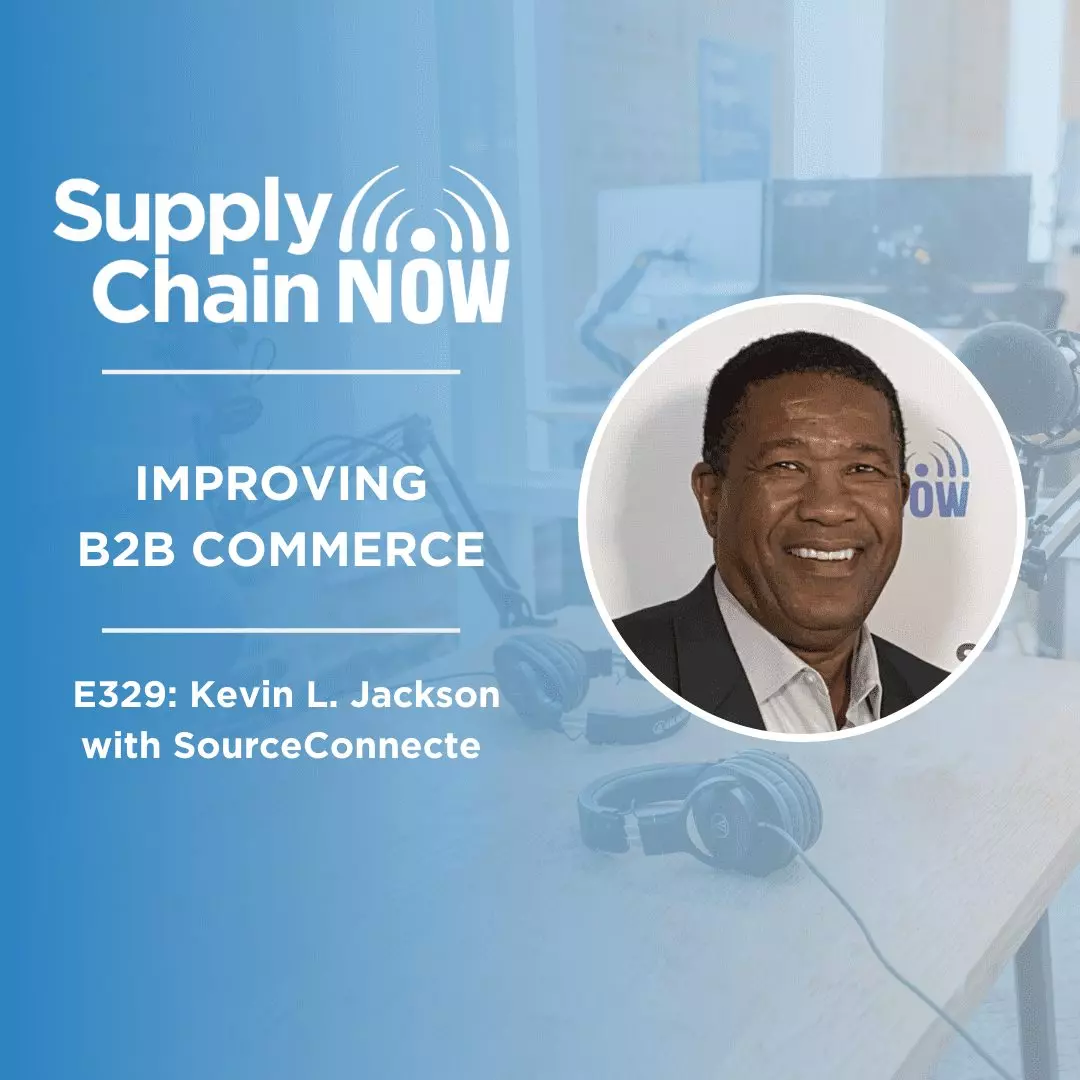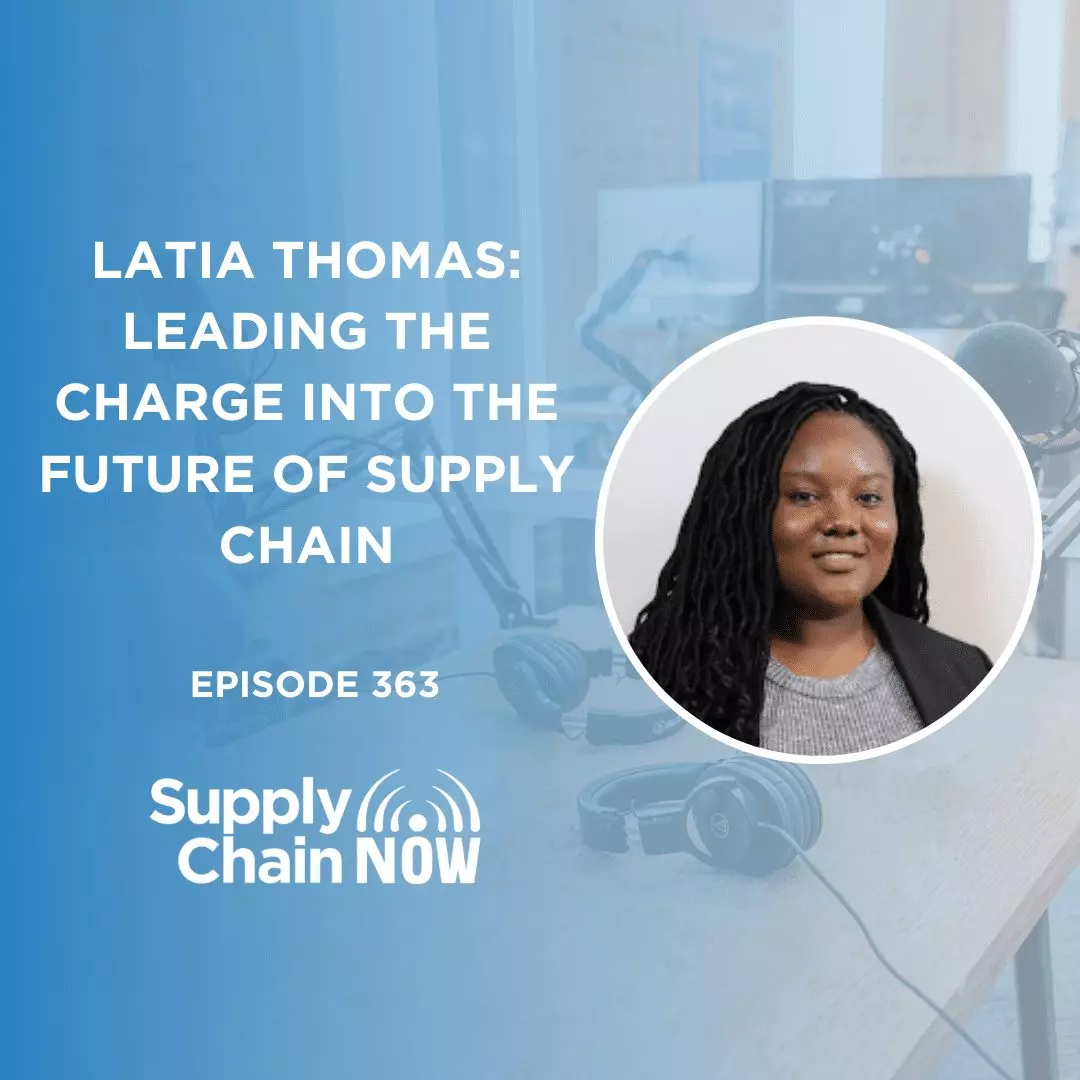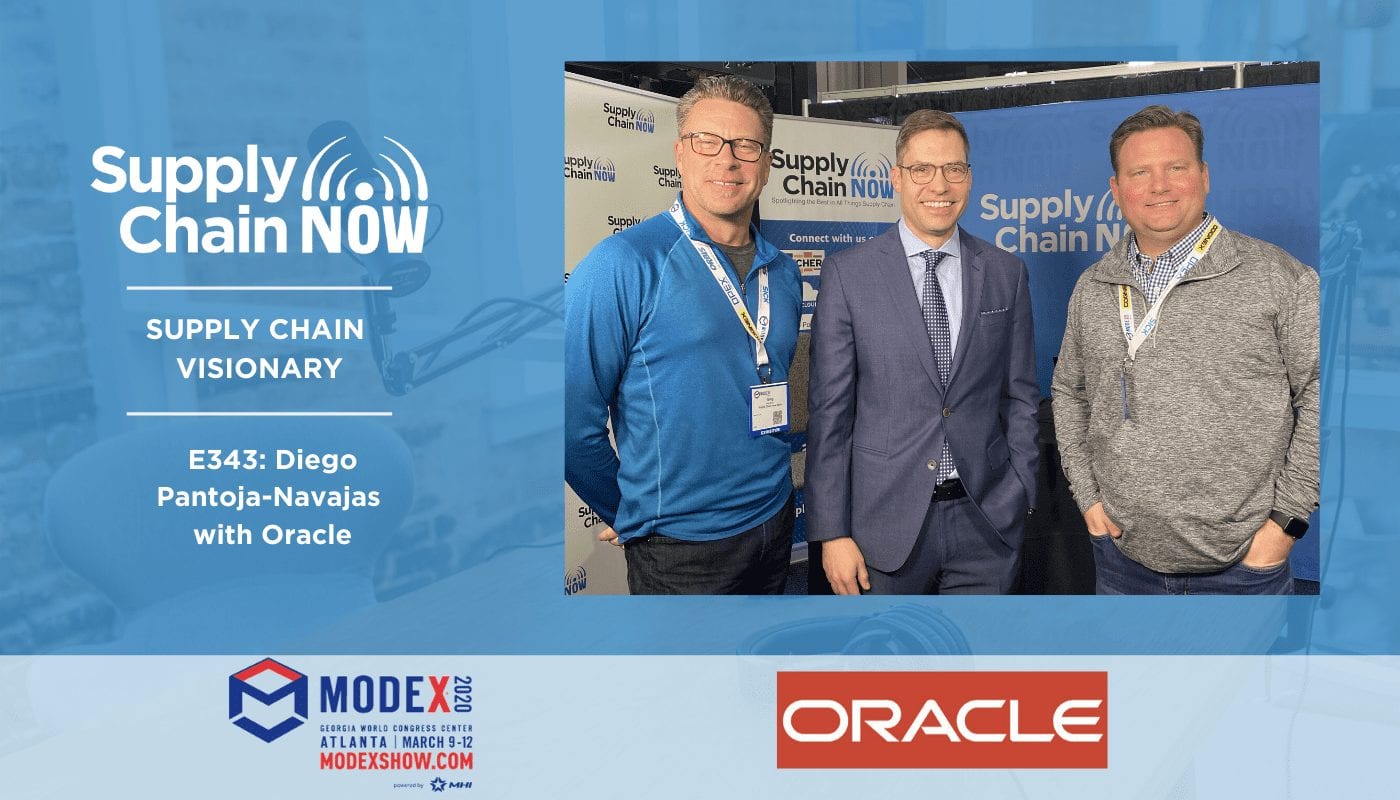
Episode Summary
“I think supply chain is one of those industries that will never settle with one model. Supply chain has moved away from the linear model to consumer-centric models where consumers are at the center of the supply chain and everything evolves about us.”
– Diego Pantoja-Navajas with Oracle
Supply chains are more data-driven than ever, breaking down silos and allowing faster, better, more precise decisions between all of the players in a chain. When companies make the decision to put real-time consumer preferences at the center of their supply chain decisions, they have to be ready to move quickly, and respond to cues from seemingly unrelated external sources such as the sports world and social media rather than internal cues such as inventory levels and operational plans.
Diego Pantoja-Navajas is the Vice President, WMS Cloud Development for Oracle and Founder of LogFire, which was acquired by Oracle in 2016.
In this interview, Diego Pantoja-Navajas and Supply Chain Now Co-hosts Greg White and Scott Luton talk about:
- Why inventory management presents such a huge opportunity for operational efficiency and financial health
- How all companies – even services firms and retail operations – are effectively becoming technology companies today
- Why the widespread disruption from the coronavirus pandemic should serve as the catalyst for more change, not a reason to delay making changes that were already possibly overdue
Episode Transcript
[00:00:05] It’s time for Supply Chain Now Radio. Broadcasting live from the Supply chain capital of the country, Atlanta, Georgia. Supply Chain Now Radio spotlights the best in all things supply chain the people. The technology is the best practices and the critical issues of the day. And now here are your hosts.
[00:00:28] A good morning, Scott Luton here live with your own supply chain. Now welcome back to the show. We are if you can’t park here in the background. We’re broadcasting live from Moad X, the largest supply chain trade show in the Western Hemisphere, held right here in Supply chain City, Atlanta G-A. On today’s show, we’ve got a run guest speaking with a Supply chain technology leader that helps to make Supply chain happen, make it make Supply chain successful. So stay tuned as we look to increase your Supply chain Tech IQ. Quick programing note you can subscribe to our podcast wherever you podcast from Apple podcast. Spotify, YouTube, you name it. Be sure to subscribe. Right? Still your Lu named. It did. That’s good though. Be sure to subscribe so you don’t miss a single thing. Well, welcome in my fearless, esteemed co-host here today. Greg White Supply chain. Serial Supply chain tech entrepreneur. Trusted advisor. Spirited lunch discussion facilitator. Part time pastor. Greg, how you doing?
[00:01:28] Thank you. I’m doing great. Yeah, it’s been a really interesting show, man. I mean, there’s a lot going on here. Absolutely. Great to be talking to this cat. Really excited to be with this guy yesterday. So. So you know the intro. So my good friend and Vise, president of Oracle W-M S. Cloud Development, Greg Diego Pantucci Navar has had among all day Bolivia. And that’s correct. Si. That’s correct. You got it right. So great to have you here. Thank goodness. Yeah. Thank you. And you know what? Yeah. We can do that. We know each other well. Yeah. So in case everybody can’t tell, Diego and I kind of came up together. We started our companies at roughly the same time. I took investment about the same time.
[00:02:11] So your company was I mean, I’ll let you tell the rest of story. Your company was acquired by Oracle’s sometime ago and you’re now transitioning it to a full Oracle suite of products. Right. So what we can talk a little bit about that.
[00:02:24] Yeah, that’s correct. You’re right that that acquisition happened three years ago. So, yeah, it’s so fast. It’s incredible. Three years, three years ago. Like, I feel like three years. And it’s being a lot of change. Three years and two children, three years to children’s. And, you know, the only s parties I don’t see. I don’t get to see him that often. Now, it’s actually the last time we tried to set up a dinner. His wife, Paola said you should punch each other in the face for not being better friends to one another. Exactly. Yeah, exactly. We didn’t do that. We’re nonviolent. That’s a nonviolent. Correct. This is a good relationship and friendship for a long time.
[00:03:01] Well, this can be a great episode, I think, on that basis alone. So, you know, Diego, tell us about before we talk about all the exciting things the last three plus years must be.
[00:03:12] I mean, yeah. To be part now of the Oracle family of companies, which is helping to make things happen across the globe. Supply chain, let’s get to know you better first though. I know. Let’s let us learn about Diego, what Greg may know. So tell us about yourself, where you’re from and give us a story, too, about your upbringing.
[00:03:27] Sure. I was born in Bolivia, South America. And I had the opportunity to grow up in different countries. Um, my my dad had a very important job and we used to travel to different countries. We learned to deal with youth in cultures and people. You know, I have three brothers and I learned to live with them good and bad.
[00:03:55] Greg Yes. You guys like all of that Latin bones and all? Exactly.
[00:04:00] Gnosis But the good thing is like that gave me a lot of structure in terms of, you know, being being able to adjust to diversity. I adjust to different challenges. I came to the U.S. in 2000. I’m sorry, in nineteen ninety nine on January 2nd due to go to Georgia. So I was very lucky that I was able to get to Georgia Tech. I did. Supply chain Aida Industrial engineer and there. Wow. I graduated with honors. And you know, I’ve been very focused on, um, really building my career and those sounds. That sounds a little bit boring, but, uh, it’s it is really that’s that’s been the focus. Greg has been the focus when you come from a different country. Okay. And this is very important. Maybe you guys don’t see it because you guys were born here. But when you come here, I mean, you come to the U.S. and. To your point, when you come to the capital of the world, the Supply chain. Not like in other us, you know, the world. You know, you have a very short amount of time to make it happen. Greg And you can always your time. So that was a very focused variant that I was able to start in Supply chain early on. That was I used to work for different companies in Supply chain. That gave me a lot of structure. I had the opportunity to meet great people like Neil Foale and others.
[00:05:29] I you know, that’s yeah. That’s who introduces us, right? That’s right. And I keep saying that I come from the nofollow School of Thought and that.
[00:05:39] Who is Neil, by the way? I got to ask Neil, is he saying he’s Lord, father, godfather or the barcodes?
[00:05:46] Godfather of Supply chain. Yeah. And he had Neil fording associates and he he he had all their retail companies that he also sold.
[00:05:54] So he’s one of those guys that he had a lot of a lot of a lot of. I will say he he he was able to develop a lot of leaders like Greg and I in the industry for many years. Yeah. Okay. So that that’s the boring part. Come here. Once it’s cool. Guy graduated. And I was you know, I being I am a engineer. Yes. But I’m also being Entrekin. You’re right by nature. So I always wanted to build my own company. I I started to learn more about cloud in 2000. I was a dozen six. Okay. That’s the time when I started to look into what was happening in the world, why Supply chain was so not ready for it. Craig like we being one of the Landor laggers to really go into Supply chain. Yeah, I saw into the clouds. And then we started to to dig into that. We wanted to create a differentiator in the industry. We we wanted to make sure that companies get out of that. These use cycles of how they develop software, how they maintain software, how they really take care of their customers and implement its Greg White because I mean, w mess in the day and traditional solutions still are today very heavily service oriented.
[00:07:20] Right. The product is just a kernel of what you need very often and you have to build so much process and technology around it as you implement.
[00:07:29] Yeah. And if you think about the industry in general, you know, before clouds Greg White, this implementation used to take twelvemonth, right? A more Greg White. But if you were lucky to. Well, we’re lucky, right. But but if you look into that, it’s because most of those companies, they used to report Iran. Seventy five to eighty five percent of their earnings coming from consulting services, not from selling technology Greg White. So it was a vicious cycles and that vicious cycle needed to end. And and I think Cloud was able to bring that technology to make it more affordable. Yeah. Break the cost barrier entry point that at this point, no small, medium companies didn’t have you know, only the big companies were able to access to these ladies in the grand equalizer. It will end in a way Greg White. But I think that’s the technology and we will talk about it. You know, that’s how technology has progress. Craig But if you look about Greg’s company, our company and all the cloud players that started early and we were early adopters and pioneers pretty much in Supply chain, we really took a big, big bet because at that time the conversation was never going to put my supply chain, my inventory, the core, my my data, my data, my differentiator, the cloud.
[00:08:49] Craig Right. I don’t want to, but but it doesn’t seem that arms change. And that doesn’t seem like that long ago. But it was well, I mean, that was like well fought to tell with 15 years ago. Fifteen years ago. We don’t look that old but. Right. But we held up pretty well. I think those are jeans.
[00:09:07] But it has been that long. Correct. It’s been that long in terms of the maturity of the market. And the market is still not the full of full maturity. Greg? Yeah, we have we’ve we’ve we’ve have crossed the they they they did the chasm. Yeah. We are stealing that, um, adoption phase and I think we are in the later part a larger part of the adoption phase, but still we’re not fully there because companies are still not there. Craig Sheer The financial model of the on prem model is still there is valid. There are big companies that they’re still working on that model and then they’re not allowing their customers to move on.
[00:09:45] So for non technologists that are still you, we get a lot of feedback from from students that are looking to break into Supply chain. We get a lot of feedback from folks that are early in their supply chain careers or business. Greers. So if you had to describe what Oracle w cloud development does in a nutshell for non technologists, what would that be?
[00:10:07] Diego? Well, where are the execution part of the supply chain? Correct. We’re the ones who get the hands dirty. Yeah. And Mehiel things in the supply chain. Okay. Where the guys at the warehouse, where the guys who unload trucks, a storage drawer, a storage inventory and I think a big the loads that we put into trucks to deliver it. Great. But that’s one model Greg White supply chain of the past. Derek was very lenient. Greg White very simple product. We’ve got manufacturing here in India and then the sourcing point they used to go linearly into the end of the consumer A, B, C yeah actually yeah. But then of course cloud mobile, super demand and the amount of commerce that have changed and we have moved from a pushed type of supply chain to a demand driven supply chain. Correct. So true. So now there’s supply chain has become very complex. Not only now we get dirty at the warehouse, but we get dirty at the stores and we and we we we make sure that inventory it’s available to be able to complete all the different cycles that we need in supply chain Veridian planning, forecasting, shipping. And then now you merged all those with new KPI, the, you know, ship from store or what is your you know, your conversion rate a from on prem or `sorry from direct, from warehouse to ship, from store or pickup’s store.
[00:11:37] Right. The KPI is have also all because the number of channels in Supply chain has multiply and they will continue multiplying because we see more challenges. Right. We see you know, we’re channel more channel you can buy on Instagram and you can buy Instagram Creg. So and that’s that’s that’s fabulous Greg. I think Supply chain is one of those industries that will never settle with one model, right. Because we are consumers and supply chain now has move away from these linear model that I just tell you before to these consumer centric industry where we consumers are at the center of the supply chain jerai and everything evolves about UPS Greg White. We became the center of the Supply chain we DeMamp products every time we won. We weren’t products anywhere. We won. You know, we are being also says as society being faced with challenges like the virus that we are experiencing. Jurys, world correct. Sustainability, sustainability, your economy. Exactly. Greg Suzanne on all those have a direct impact into the economy. So Dwight and I say the beautiful thing about that, Diego, is that Supply chain can solve a lot of what can supply chain supply chain leadership supply chain know how technology. What can it not solve?
[00:12:50] Well, I don’t you know, I think what we’ve seen is we’ve seen supply chain transition. I mean, I think Supply chain professionals were set up to solve these problems by first being firefighters’. Yeah, right. Yeah. When the problems hit, the supply chain people solved the problem. Right? Right. And over time we’ve evolved that from. I can’t remember who said this from rewarding the arsonist so that we are we can ricken we can claim to be great firefighters to trying to prevent the fires and that evolution continues. But but we’ve always had the component of being incredibly responsive when a disruption like Corona virus or a change in infrastructure or or even a change in the drivers of supply chain occur. We’re naturally adaptable as professionals and the technology is likewise correct. And and I think the Supply chain is one of the best equipped portions of industry to evolve as as, you know, commerce evolves over time.
[00:13:52] Agreed. And the cool thing that I really have enjoyed seeing is now there’s over five just in the U.S. alone, there were 500 institutions from Georgia Tech, which is a preeminent supply chain school, to two year schools to tech schools, over 500 programs around that focus on supply chain management and our educational system. Yeah, that yeah, that’s going to keep that pipeline of talent into an industry that can steal thunder from Enrique Alvarez. Save the world. Yeah, in many ways.
[00:14:22] But to your point, correct. Like if you go back 5 10 years ago, Greg White, the Supply chain chief executive officer didn’t exist, right? That’s right. Right. It’s something that companies realized like we need somebody that can help us in this part of the equation for making our company more, more, more profitable. Greg, at the end of the day, we are the ones who are making those cost units cheaper. We’re making the margins higher. We are the ones dealing with seasonality, these viruses. Greg, 90 days ago, before we.
[00:14:59] Sign for these show crack, try to go through your agent, right? You’re in demand. Yeah. But Buzz got his PR team here with him. But look at that guy 90 days ago. We were not talking about these virus 90 days ago. We’re talking about Brexit. Super Bowl tech. Super Bowl tech. We were talking about Stane abilities in a bit. Right.
[00:15:18] Three wars. We were talking about that. Great. So I think what I’m going with this. I think data now it’s the data that we have in Supply chain is driving the decisions, is driving how the future will continue shaping in a better way. Greg White before there were too many silos and we experienced that. Correct. You know, there was on prem solutions. They were very siloed applications, right? There was not enough interaction.
[00:15:47] Mass didn’t talk to demanding landing and vise for vise versa, which was crazy.
[00:15:51] It created like we had these conversations together with multiple customers that we worked together in the past where we’re now the data has become really the fuel of the supply chain. Yeah. And if you look now that the usability of the data, it’s really unlocking and unlocking endless possibilities. Now in terms of how you people supply chain, how how you drive supply chain going forward quick, we’re moving from from models where we used to source products from one location. That model we used to apply them applied. Oh, we used to live by that model for the last 50 years. We need to change. It is not anymore. Labor, a labor labor force or space is about productivity is about increasing our, you know, student or our our workforce with new technologies like machine learning. I don’t like AI artificial intelligence, like machine learning. And the reason why I like everything, he’s intelligent because I think people think about Robocop and and all the things they’re all going on is really machine learning is how we can find those events within our work or supply chain that in machines can learn to make it more easier for us. But we’re making data more available. We’re making data more accessible. And all these 4.000 industry think knowledge emerging technologies are helping us. Yeah, and to making more informative decisions while helping companies to drive that decision upstream and downstream, we’re able to refocus in terms of building one million square feet warehouses now where we’re saying, hey, we can move to a block store type of model where, yeah, we’re changing the model. You know, we’re bringing the demand anyway that the data. Yeah. And that’s what we need to understand is that data will continue increasing. We’ll continue growing. The physical state will consider declining. But at the end of the day, we are doing one thing. Yes. And we’re doing that one thing better. Yeah, we’re serving our customers.
[00:17:44] That’s right. Better. I love that. But going with those people. So we all kind of fits, right. I love that. We’re going way back to something you just shared. There is is data is the fuel of supply chain and loved that. That’s first time I’ve heard it put like that. We had, of course, data. We’re all dealing with it. We all understand just how important that is now more than ever before. Just over your right shoulder, I was given a thumbs up. They burned. Who leads Econet Economic Development in Newton County here in Georgia, where Facebook just just put that huge campus. Yeah, he just stopped by. And, you know, thinking of whether it’s social media data, whether it’s supply chain and business data, whatever it is, we’re consumed with it. All right. And business leaders, the savvy ones, know just how important getting the data, getting your right data so that you can make these important and timely decisions. We can’t study some 4, 3 weeks these days. Right. Right.
[00:18:40] Like, look at social media to your point. Correct. The effect on supply chain. Mm hmm. You know, one late delivery. Yes. Your house. What?
[00:18:51] You know, I go to Facebook, I go Twitter, Twitter and flame out a or the vendor crap.
[00:18:58] So that’s how, you know, we we’re living in the world with the data became the major the major fuel, the major source of information we were dealing with customers sit there with massive sorry, mass ification of products at the same time. CREGOR Impersonating me? Yeah. Like Greg, I get almost was wrong. We’re able to go find products now because, you know, Tiger Woods won the Masters last year. Right? And then John and we went all crazy to buy new golf club, new Tiger gear. Tiger Yeah. Which was in the back of the warehouse because it was not cool anymore. Greg White. But then Supply chain needed to react to that social event and be able to be more more efficient in shipping the product and making that product available.
[00:19:48] I want to give you another great example to illustrate the great point you’re making. There was a very well-known fast food and rapidly growing fast food company that about. Six months or so ago, there was an image that hit a story and an image that hit social media about one of their products. And boy, I’m not sure if it and now want I’m not going into this specific store. Not sure. Well, so one of my favorite restaurants is within this within probably clued in into who it is. Same day this Supply chain team had sent folks on site to kind of verify these claims. And then they at the same time figuring out alternative sourcing. Greg White. Talk about the social media impact on supply chain.
[00:20:31] I mean, it’s a myth. So if you’re thinking of an even different event than I’m thinking, I’m I’m thinking of the the Popeye’s chicken sandwich. Now you’re gonna go. You’re gonna to. Name that. Yeah. Yeah. Is that what you were thinking? No. Oh no. Competitor. But I mean I guess what you drammen. But. Well, but I think that you know, I think it is those kind of things that that we have to adapt to. And I think the other thing and that’s that brings up a very good point. I was going to bring up on another front and that is that Supply chain used to be considered a back office, correct. Kind of of event, a kind of service.
[00:21:09] But if you think about it with the importance of customer experience and the exposure of social media and as you were both talking about and you think about things like sustainability and ethical vendor behavior and and circular economy, Supply chain is more and more a part of the identity and the branding of every company that moves goods on the planet. Yeah, it’s out front. It’s no longer a back office thing. It’s more than just we used to. Not so long ago, Diego, we used to say that it’s not no longer a necessary evil. It’s a strategic differentiation. And it’s even more than that now. The grid is the identity of your company.
[00:21:54] And that point is so value it creates. And talking with CEOs and CEOs. One of the things that we find out is that’s and this is a huge percentage. Gates. Sixty five percent of their revenue. Okay. It’s coming from improvements of inventory visibility and all day long, but it’s a big number and it’s coming from what they’re able to do in order to reduce the costs that we’re related to. Supply chain. Right. Making that product available on time, making sure that that product is de-lever on time. So all the on KPI is that you can imagine if you check on all of those and that is how relevant we became in today’s world. Greg White we are not that not what you do. To Greg’s point, we’re not anymore that call center that we’re consuming resources to manage the product. Now we’re turning to the companies that run the making sure that because of our technology, because of what’s what we can do and the data and the data, yeah. Now we can turn out wrong companies and make them more efficient. And like, look, you see most of the retail is now in North America. Correct? I called I had a couple of weeks ago I released an article talking about them and the transformation that they had.
[00:23:19] And really, these have these company have become technology companies with a front end. That’s right. Or a bucket. But but at the end of the day, these companies are are investing heavily in technology internally. They’re developing multiple applications. They’re driving the data like we talk. And yeah, of course, they have their beautiful stores, but the stores have reshape have changed. And all the kind of things that we know about is, is they they have become a technology company rather than a retail company. Yeah. All right.
[00:23:50] So as is the case, typically when we get three folks around a table that are passionate, we’ve got to get out where we’re everywhere. It’s become our manifesto or supply chain manifesto. So this is Mike. That’s right. This is my attempt at adding just a little bit of structure to the conversation. Diego, you’ve shared, I believe, way back when we kind of do before we drove into some of the things, trends shaping industry. What your company does. Right. We want to broaden it back out a moment before we do that. Can you kind of give us a sense of the types of organizations that you’re working with and the types of the problems that you’re solving with those organizations?
[00:24:32] Well, in terms of industries, we we are working in almost 14 different industries. OK. One for one. One for I’m sorry, for 2014. This is f40. I apologize.
[00:24:45] 14 different industries, OK? And and and the beauty about that is before we became part of Oracle, we were a standalone solution. Okay. Very focused on five different industries. It seems we became part of these large foot Greene of supply chain applications. We have expanded the number of industries that we serve and the number of customers that we serve and also the number of complex, uh uh, challenges challenge. And in a need that customers have in their supply chain, Greg. Because as you expand and now we have expanded into 32 different countries. Yeah, the application has been translated in 17 different languages and that’s going on the going and growing. And now we serve a large, large sales force that before he was a five man show. Correct. So the complexities have grown tremendously. But to your point, there is God. At the end of the day, it comes down to how more efficient can you make. My supply chain Greg White is about and we are in the cloud. Correct. And we were born for the cloud and our application has always been in the cloud. So we are really tailored to those customers that believe that that’s the transformation that we need to do, the digitalization that we talk correct. Which for me has a broader repercussion. But yeah, it can be anything but at the same time can be how you’re moving from procedures or how you move from technology that you’re dealing update. that you didn’t have your hands around.
[00:26:31] Greg, what happened is as cord there is that many of these customers had their hands tied because of the technology that they had in the past. Right. So, you know, they were not able to adapt to all of the different channels or all the different challenges that we talking. We’re not able to analyze the data or see the data. The way we’re seeing it was tied to on premise solutions.
[00:26:52] And the reasons, lots of customization, Armstrong them because you’re like you could implement the same system that I did at its core. But because you customized it, you have essentially what is a one off, right. And and that disabled companies from being able to move forward rapidly because even the company who had built the technology couldn’t support it. There was so much the person who wrote that code that made it so customized to you was long gone. Yeah.
[00:27:22] Or or that person, to Greg’s point, correct? Oh yeah. Jerry left the company. Yeah. Yeah. Hit by a bus or what won the lottery. Let’s go with won the lottery. What were you guys needed that he’s like. Well we don’t know. You know, Jerry loved the company. So those are conversations that. And also the cost, correct. It was not an upbeat. He was an upgrade. Right. And there’s a huge difference with you out of rates and updates. Correct. He was a rip and replace. Correct. You needed to change everything.
[00:27:50] Data, servers, servers, application, do the whole thing again. Correct. Now, with cloud, we release code four times a year. Yes. Okay. So you’re getting a not a win. And we’re not only releasing code for used-car, we’re releasing code that is going to be applicable to all cost customers, to all industries. And that’s where the complexity comes. Great. So we have taken a lot of the complexities away from the customers. And because of now, we’re able to automate a lot of those processes internally and being able to use a state of the art technology.
[00:28:24] And, you know, we we run our our product scene in high availability servers and we have a tremendous Oracle cloud, uh, Gen2 that allow us to do two to two to close all these applications to have great performance bubble.
[00:28:42] So we have you have you have better cybersecurity than they have on their servers at home in santarem, US security and everything that that became.
[00:28:51] So that’s a huge point. Thank you for bringing that up. And all those components make that supply chain more efficient and better. But to your point, we’re solving, didn’t they? You know, we’re moving products. Correct? Right. You know, it can be cars. You can be automotive pieces. It can be some sort of pharmaceuticals or market. It can be technology IV or whatever it is. Correct. But at the end of the day, it’s being able to have the flexibility to adapt. And being able to great. Give our customers, regardless of the industry, the tools that they need to face today’s challenges for tomorrow’s benefit. Right. That that’s that’s that’s that’s how I will I will summarize that.
[00:29:34] So let me make this one point very quickly. All right. You know, is very rare. Yes. Very. And that is, you know, one of the one of the things that overcomes the the burdens burden of customization is that cloud solutions use switches and dials, virtue’s virtual switches and dials to to make those changes that your enterprise needs versus what my enterprise needs. And that makes the product eminently more sustainable, more portable, but equally as configurable. So if you think about the difference between configure ability and customization, configure ability is supportable. Customization. Not so much.
[00:30:15] And to add on to that, sorry for you for drawing on this point. It’s OK. You’re just between us and lunch. Yeah. Or Greene. Correct. How long ago? Yeah. Yeah. Uh, no.
[00:30:26] But what what is important to that point, right. Is as we’ve been growing in terms of number of industries, number of customers and regions. Greg, we also as as cloud innovators and the cloud companies, we really needed to have a very strong platform as a service solution. Correct. So now when they talk with customers, I tried to to help them driving these conversations in terms of 80 percent of what you need can be done with SAS, which is software as a service. Right. With the application, with the customers, with the a configuration that you that you have in applications and that 20 percent remaining, you can explore it by using APICS and extend and extend to the application to any behavior that you want. Yeah. With tools that you know, which we deal with with different with different mobility or different tools that allow you to build those very, very unique processes are unique options that you need to help to make that happen.
[00:31:31] So, yeah, I you know, they you don’t lose that that and it’s part of your core is part of your business. But at the end of the day, we as companies can continue innovating without disrupting. You love it. Okay.
[00:31:44] Now we’re gonna take a right turn and we’re going to go broader with the conversation. So I want to get you. I’m sure you’ve got a thought or two about certain trends or certain things taking place in the global supply chain. And then after we get your take on this. I want to go back to entrepeneur realism after this. But because you’ve got a great story there. But weigh in. You know, one of the common themes, all these interviews going back to Arizona couple weeks ago, going back to Las Vegas a month or so ago, is just all the noise, all. You know, you can cover a story every second that’s impacting on some level. The global supply chain, when you survey that and you think about developments or innovations or challenges, you name it. What one or two things has got your attention more than anything else right now?
[00:32:36] I will start with I think we need to understand right now that the only constant that we see in the world right now is change is disruption. Okay. And that’s not going to end. We’re going to see the next event happening 90 days or in two weeks or in the summertime when the hurricane season starts or something’s going to happen. Correct. So and the reason why star with with that point is because the point that I want to make across is that you need to face that chaos now.
[00:33:12] You can not continue delaying the the change in technology that that the change of thought that you have as a leader in your company and continue elongating or stretching out the technology that you have, security, new business reasons, being able to comfort you. You need to be able to pivot and change. All right. You need to understand that your workforce is also changing. Yeah. And then has contracting and that’s growing. And it’s going to continue changing. Correct. Like we we if we don’t make supply chain, if we don’t make our supply chain jobs more interesting to then to the new generations corrective even if you’re a company.
[00:34:02] When I continue giving to those end users black screen, and I was afraid you were gonna say that.
[00:34:09] That’s exactly what I was thinking. Can you imagine a millennial correct in front of a Greene Greene solution?
[00:34:14] Oh my god, it’s crazy. Greg White such so. So what I’m going with his point is we really need to. And this is again going to some of the points and conversation I had with even CEOs and CEOs. It’s like we want to transform our company. Okay. And that conversation started maybe five years ago. By 2020, I need to utilize my company. Correct. We’re 2020. And I still I’m still having this conversation with those leaders. And they have not started I haven’t started not started yet because they’re afraid to, you know, how how how demanding is going to be how disrupt is gonna be for my business. So what I’m trying to say to summarize is caught these companies and you see companies that have made the change you’re seeing now leading the market. Correct. You see and you know, all of us have maybe four different names in our heads right now that we have seen transforming over the last 10 years. Greg White. They were in the bottom of the list. They have no face date. The Kael’s, they have MHI made the necessary changes. They have adopted new technology. They have? Yeah. B, they took bold decisions. Yeah.
[00:35:27] And now they took some arrows I’m sure.
[00:35:29] Yeah. And they took Samarra’s and as we all do it and have done it. But now we need to continue making those changes and companies need to need to need to completely understand that if you don’t change your game plan is not only about the players, it’s about the technology is about how you evolve. And if you don’t make those changes now, you’re you know, you I’ll say it.
[00:35:53] You’re doomed. You do. Thank you. You are. You know, we said this in an engine. We just said this in a recent. Yes. Interview. Yep. It used to be that if you were a severe laggard, you were only damaged or delayed. Now you are destroyed. Destroyed. You are facing destruction because you don’t do.
[00:36:10] And we have so many of those. Uh eh. Histories or stories in a marketplace. Yeah. Okay. No doubt. No technology is greater than one thing that you have seen.
[00:36:22] I think if you see in this in this show, which you have so many great vendors here and you see new technology, great. But all of us and especially when you come in, when it comes to mechanization and all those, you have seen how all these big companies have been able to turn it into more modern modular way. Yeah. So everybody is taking the approach of making it more. You know, if you if you need more muscle, you can flex the arm and you can add more. Right. If you need to take it down. The dynamic right now is a dynamic. Yes. Supply chain. And that’s how the market is reacting.
[00:36:55] Yeah. Okay. So we’re gonna get you back on. There’s so much passion and knowhow right here. Is it is it is not going regulated the six episode. Yeah. You think or maybe a whole mini season a or something like. It’s like Dallas. Yeah. Who shot JFK. Or just say Diego. Yeah. Like that. All right. So big name. Yes, Diego.
[00:37:19] Let’s talk about as we kind of wound down the interview here. I really love what you’re you’re sharing with our listeners. And I’m sure they’re enjoying it as much. I wanna go back, though. Kind of more agnostic alley about entrepeneur realism. Clearly, you had an outstanding inspiration and a model in your father. Yeah, I believe in you house I had a leg up on. Yeah. I know as a father, one of things we’re trying to do with our three children or give them more international experiences exposures. You talked about how you had that and you were able to work with different cultures and appreciate different cultures. That is such an advantage in this. And it will continue to be even a greater advantage in this global business age we live in. Yeah. So to speak to that a little bit. Tell us more about that impact, especially early on. And then, you know, for other entrepreneurs out there that are fighting in the trenches, you know, trying to get a break through, trying to break out early stage, you know, give some gifts and inspiration.
[00:38:19] Yeah, I look, we when when we started the company. Okay. We look into, of course, the U.S. market is the king of the markets, correct? If you are able to break into the US market, you are able to get customer momentum in the U.S. market. Then you have done a great job on really having a solid solution, a mature solution as a mature business model and all the kind of good stuff.
[00:38:47] Right. So you can make it here. You can make it anywhere, anywhere in that kind of thing. Right. Yeah, that’s that’s pretty much what I’m saying.
[00:38:53] But for us, when we started the company, this was 2007. Okay. And Cloud, like I said before, was not using Supply chain. And Cloud was something that when you talk to Supply chain leaders at that time, you know, it was like, hey, it sounds great, guys. But you know what?
[00:39:15] Let’s talk about that in 10 years. Yeah. Greg, this is a store ever or never. So.
[00:39:20] So we in our in our in our in our case as call what we needed to do because we were seeing a barrier in the market, we needed to look outside of the US and we went to emerging markets where they were not afraid about taking that leapfrog, uh, approach into new technologies. Right. And similarly and in those challenging challenges and say, you know what? Today, I don’t have anything.
[00:39:45] And what I have is costing me like I’m an arm and I can’t continue maintaining my business, my supply chain the way I have it. So Sheer, you come with a new model. You know, instead of charging, you know, by the user, by license, we used to charge by the drink.
[00:40:04] Meaning, you know, based on the number of cases or LPN that you used to ship, that was our business model. Right. So companies look at look at us. Okay. Well, this makes sense. Correct me if I’m shipping one hundred thousand Albion’s per day is equal to this much and it makes a feasible application for us, you know?
[00:40:24] Of course, I took advantage to the fact that, you know, I went to markets where I speak the language.
[00:40:31] I was able to put entities down there, speak the language, except in Argentina, except where we speak a whole different language. Yes.
[00:40:40] So but to that story, my my goal was to build a successful, uh, customer base in all the industries that I wanted to break into the U.S. market. Craig, I wanted to have a pharmaceutical company. I wanted to have grocery. I wanted to have a retailer. I wanted to have or merchandise. A home, homey home. A home improvement goods. Yeah, I wanted to have three peoples love. But then we didn’t realize that. And this is 2008. OK, so Tom is like it’s it’s downtime. The economy is not doing well. And here we are going against the they they knew didn’t lead anywhere in the world, you know, new applications. So, yeah. And I think they did deploy here two to two. And trippin’ years is it’s really you need to find your market. You need to find, uh, the business model. That is it’s it’s a business model that you can replicate that you understand a machine that can generate leads to feel your sales guys. Uh, it’s not about a great idea, right? It’s not about technology. It’s about solving an issue. And tenacity and tenacity and fire and being able to know what I can eat, uh, rice and to for the next five years.
[00:41:56] Rath And B, meals like five years. It was it was it felt like I had yesterday for lunch more peanut butter and jelly jelly.
[00:42:04] Yeah, but is that so? We were able to grow very fast outside of the US, uh, in 2012. Twelve. Then we realized like, well, we have triple digit customers outside of the US. Uh, and then we started to get the momentum. Of course we started to see some of the market recognition from analysts like Gartner and others. We got incorporated in the into the mark into the Gartner Magic Quadrant. It’s easy to sell. Why wasn’t that zill against the run? Yes. Okay. So I mean, hey, you say, hey, I’m here. I said, okay, you’re validated.
[00:42:38] It’s not it’s not a formula for success. I think we just we both grad- had had Magic Quadrant company companies and we thought, oh, the roof comes off now. Yeah, it’s not it’s not the the formula for success, but it is better, as you said, to sell from within the quadrant than to sell against the quarter. Exactly right. Because you have been recognized and validated by the leader Z leader in in technology.
[00:43:07] And then with that you start building your market and uh, the growth went from there. Greg White thing, that’s enough to that story. And we have had one of the most positive moments in growth in our industry to, uh.
[00:43:23] And then but he’s also looking. Dan Solla. OK. Who do you work with? You know, what is the type of entity that you want to become? What is a type of culture that you want to create? What is the, uh, what are the investors that you want to bring on board? Uh, what is the, you know, board that you want to put in place and where do you see the gaps that you have as an entity that you need to bring, uh, more senior level company resources to help you driving that growth? There’s a bunch of things, I’m very sure, that are going to build in that company. Eric Lu. I think, you know, I was working with the Intrepid, your team at Oracle, and being able to see a lot of startups. And one thing that is concerning to me is that the idea that a lot of startups and a lot of companies that come to me and say, do you have an advise is like you have a business plan. No. Do you have a pricing? No. What is your differentiator?
[00:44:21] Initiator? I have a great cool technology. I know. But how how are you going to put that cool, great technology? You care. Who cares right back? Who wants to buy it?
[00:44:32] Who is your your the buyer, your persona? Profile that you is telling like that that that application to and how you’re going to get to them. Yeah. It’s the look this technology now. All these large companies and are doing a lot for it.
[00:44:48] And in trippin’ years, we’re giving them a lot of tools. But I think one thing that we’re not giving them is lessons to how to really build that company and how to be, uh, you know, how to face tough, tough times. And that’s one of the things that I’m a little bit turned down that that I don’t see that they you know, the world is not that easy. And you’re going to you’re going to face a lot of challenges. You need to be ready for it and and go with if you’re really passionate with your product, you have to confront those demons right up front.
[00:45:19] Better, as Scott said, early. If your job is to eat frogs, eat your frogs in the morning. Yeah, right. Face that worst aspect of the business. Yeah, right. Right now, I don’t know. One of the things is not to go 10. Mark Twain said that. By the way, you stole it from Mark. Mark Twain said it and but Scott said it’s so much better.
[00:45:40] Or like I used to tell my guys, like bad news. Don’t get better with time. Yes, that’s right. Correct. So it’s like your point is your front story.
[00:45:49] Forecki, you have something wrong or something bad to do or to say or to face. Don’t wait until it becomes a huge issue that is going to put your company at risk.
[00:45:59] I think just one really quick point that I see. You know, I advise companies every day as well as doing this, which is by far the most fun things I’ve done besides being an entrepreneur.
[00:46:12] But but one of the things that I see is that companies believe more than they have proven that they have uniqueness. Yes. Right. And that and that is one of the hardest and harshest realities to face. But it’s the very first one, in my opinion, that you need to face as an entrepreneur is what is that uniqueness? It might be miniscule. Yes. It might be that you’re a tiny Latin American based cloud WMD solution, but you turn that into an incredible differentiator that creates a leverage point to the rest of the world. That’s exactly what you did. Yeah, right. You were very focused on a market, very focused on a type of company. And you just continually expanded that by creating credibility for yourself. But you knew what that differentiator was.
[00:46:59] And by proving application. Yes. Okay. So this year, at the end of the episode, one of distribution with Diego, let’s make sure folks know how to how to get in touch with you. I’m sure, you know, if I was your PR team or that I’d get you in front as many people as you can because your passion, your passion, your expertise, your insights. It’s just it’s like emanating from you. I mean, folks can really learn a lot from from your experiences and kind of your you know, how of not just where we’ve been, where we are today, but where we’re headed. So I really enjoyed kind of my education here today. But how can folks learn more about Oracle W mass cloud development or can they go and what have you?
[00:47:43] I think, you know, go to the Oracle page and Web page and find the Logistics division there within there and they will find us. But the easiest way is Linked-In. Yeah. Uh, I’m I’m there. I if you have any questions, if you have any thoughts about Supply chain and all those that I can help you with, I’ll be more than happy to do it. And and in general, Craig, I think that the beauty about these and going back to my relationship with with Greg is that we we are leaders, that we are very easy to access. And, um, there’s no many layers to two to to getting to us. And. To be able to to get to experience how from our knowledge or from my experiences in any way, we want people to win, we want people Trident.
[00:48:34] So we I mean, we do have, you know, very great access.
[00:48:36] Sheer we’re hearing supply chain great. And again, a industry that fifteen years ago was was was was in the backroom. Right. And then and we want to continue pushing that envelope further. We want to continue making the differentiate it look like I tell my customers. Financials, ERP, great. You need it. But he’s not going to change your company. Greg White, how you move products, how you deal with your inventory, how you deal with your end consumer is what’s going to make you win. So change the world while that’s great. And this is the capital of the world for supply chain.
[00:49:11] Yes, I love that. I love that boy. Well, so that’s going to just about wrap it up here on this episode. Diego Pinto, Navas Vise president with Oracle, there’ll be a cloud development mentally. Been studying that for 17 minutes. As our audience may know, I’m slow when it comes to pronunciation. La la, la. The wrong emphasis off in right syllables. Yeah, that’s right. Emphasis on the wrong syllable. That’s right. I really have enjoyed this conversation. I’d love to have you back on down a road a little bit, especially as y’all go through this. Is this incredible growth period? Thank you. I really enjoyed it. Diego. Thank you, Scott. Appreciate it. Thank you, my friend. You bet. Yeah. Thank you. You don’t take off. Don’t take off just yet. Greg, incredible. I mean, this I know this is right up here. I mean, is up my alley is really right up your alley. I love that connection you all had kind of going through the growth and a journey.
[00:49:59] And yeah, I feel like we were little kids and we grew up right in trikes together.
[00:50:02] I mean, really. Yeah. We used to like I used to which we’ll see his office from my office. That’s true up there. Literally. You could literally do that. So why are you doing. Yeah. I go back to work. Yeah. Yeah.
[00:50:16] All right. So we’re gonna have Dega back on. Loved it. To our audience. Be sure to stay with us as we continue our coverage of Moad x22 county is the place to be if you’re in Supply chain this week in Atlanta. Also, you can find upcoming events, replays over interviews, other resources at Supply Chain Now Radio dot com. You can find this and subscribe or wherever you get your podcasts on behalf of the entire team here. Scott Luton. Wish you a wonderful week ahead and we will see you next time on Supply Chain Now.
Featured Guests
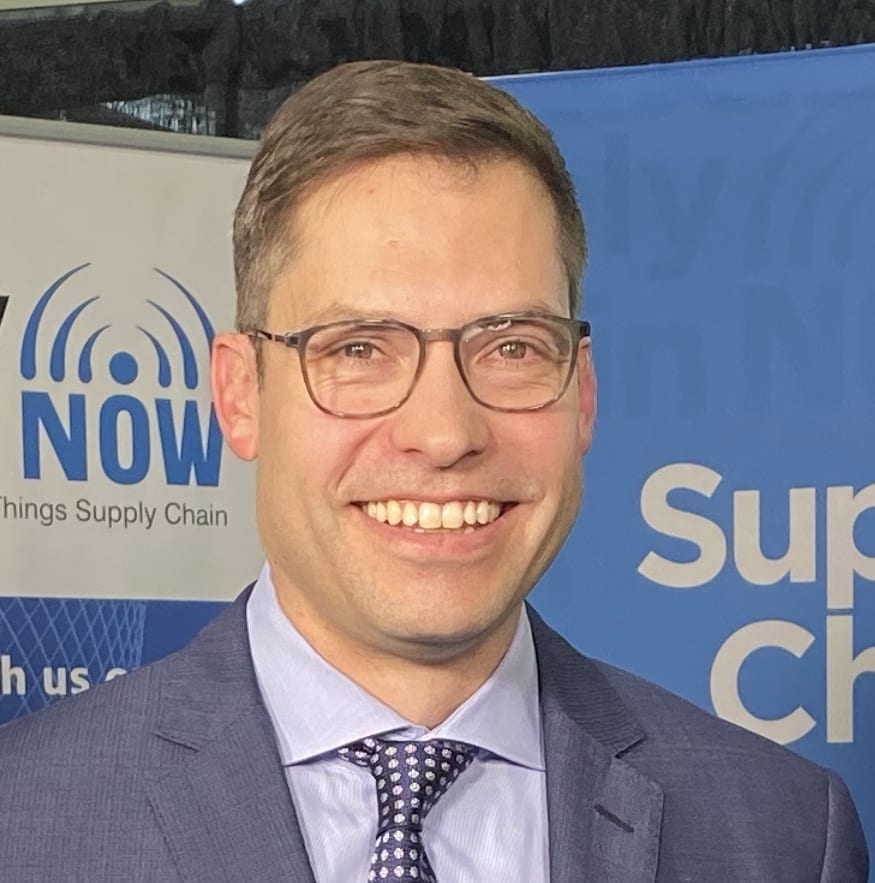
Diego Pantoja-Navajas founded LogFire after spending years designing and implementing supply chain execution solutions for some of the world’s largest retailers, CPG manufacturers, food service companies, and third party logistics providers. He became keenly aware of the market need for a true cloud-based warehouse management solution (WMS) and how traditional supply chain systems were missing the mark. He refused to concede that supply chain fulfillment could not utilize modern technologies to reduce up-front costs, implementation timelines and provide continuous free system upgrades. A supply chain visionary, Diego leverages his expertise to help customers apply 100% cloud-based warehouse and in-store inventory management solutions that address the most challenging inventory visibility and fulfillment issues. In 2016 Oracle Inc. acquired LogFire. Diego has been recognized for three consecutive years as a “Pro to Know,” Diego has published numerous articles and often speaks at industry events.
